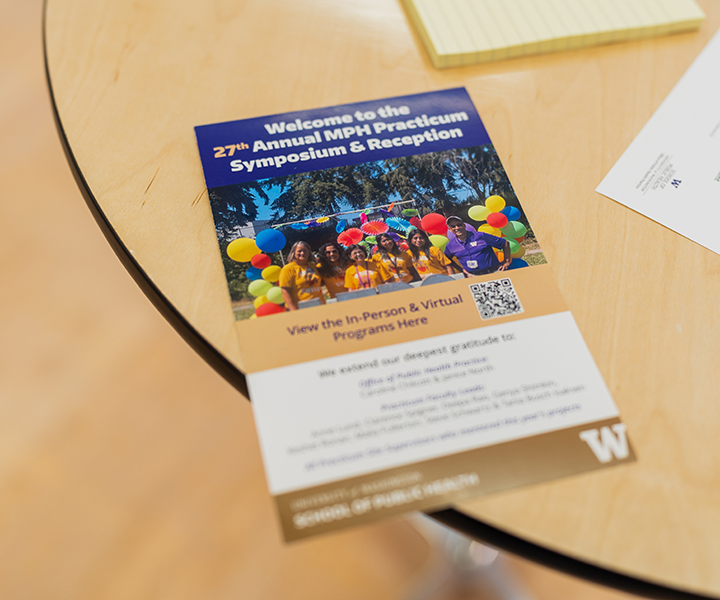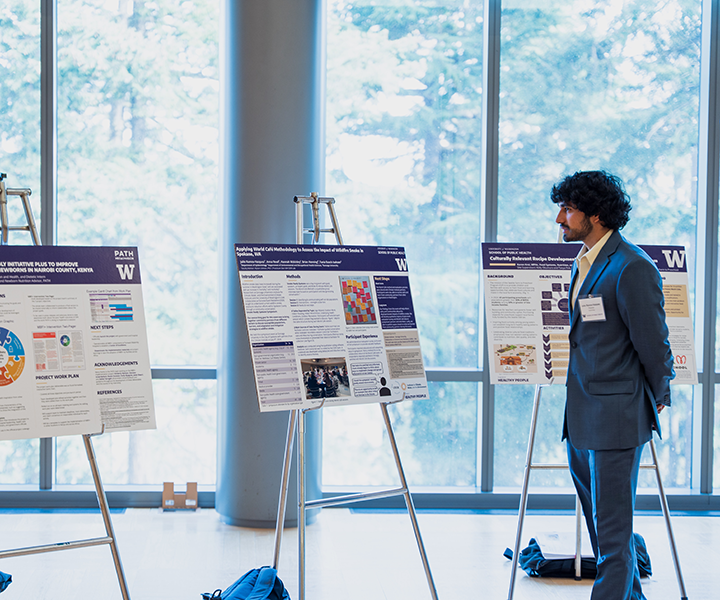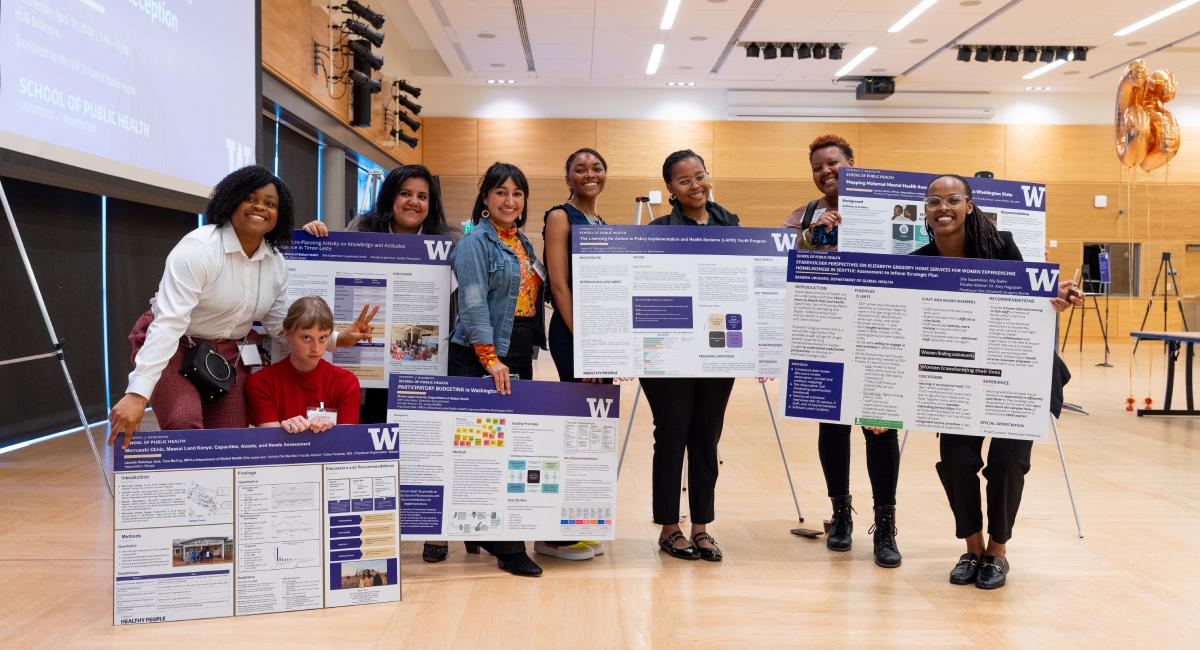
The 27th annual MPH Practicum Symposium & Reception
was held on Wednesday, April 9, 2025
We celebrated over 100 MPH students and their impactful practicum work in the community at our annual MPH Practicum Symposium & Reception. This exciting event showcased student-led public health practice initiatives, mentored by hundreds of practitioners from community organizations and supported by our dedicated faculty.
Throughout their practicums, students tackled a variety of problems, from creating a map to track ticks using hiker reports, to developing culturally representative and seasonally appropriate recipes to inspire preschoolers’ food curiosity, and to assessing barriers faced by Afghan immigrant communities to drive new policies.
With today's public health challenges requiring a broad range of expertise and advocacy, this event offered a unique opportunity for inter- and cross-disciplinary dialogue. Participants from diverse backgrounds explored shared interests, discussed new ideals, brainstormed solutions and built connections.
Discover this year’s student-driven work below.
View Presenter, Site, and Project Information
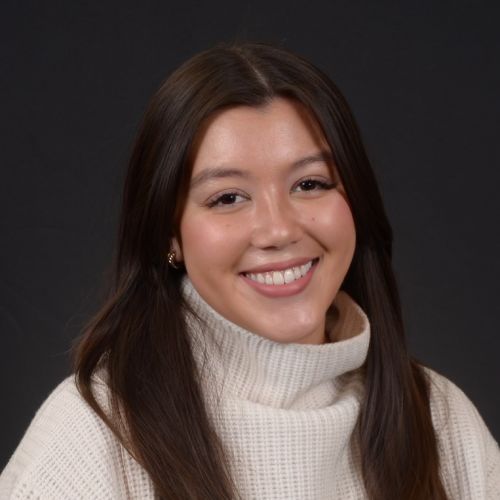
Ciara Madden
cmadde@uw.edu
Increasing the Accessibility of the Summer Treatment Program
PRACTICUM SITE: The Andy Center
SITE SUPERVISOR: Ben Aaronson
DEPARTMENT: Health Systems and Population Health
FACULTY ADVISER: Miruna Buta
CAMP ANDY is a 5-week summer day camp program for children ages 6-12, designed to help kids with autism spectrum disorders and ADHD develop social and behavioral skills outside of a clinical setting. The program aims to enhance self-esteem, self-efficacy, and resilience, particularly in group environments. CAMP ANDY launched its first summer program in 2024 and sought advice from a public health perspective on improving accessibility for campers of diverse races, ethnicities, and socioeconomic backgrounds. Additionally, the camp aimed to increase accessibility for staff, including neurodivergent individuals. My practicum involved analyzing the application process to identify facilitators and barriers to participation from the perspectives of children, parents, and staff. This work aimed to support the camp's mission of providing life-changing, evidence-based care for neurodivergent youth.
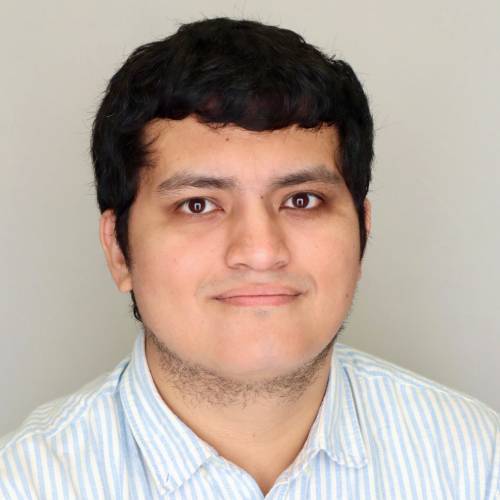
Darwin Del Castillo Fernández
ddelcast@uw.edu
Mapping Contextual Factors that are Influencing Implementation of Pediatric Burn Injuries Care in Peru
PRACTICUM SITE: Seattle Children's Hospital
SITE SUPERVISOR: Dr. Katie Nielsen
DEPARTMENT: Global Health
FACULTY ADVISER: Dr. Bryan Weiner
I am a second-year MPH student in the Global Health Department, concentrating on maternal and child health. I am also a physician trained in Peru. My project practicum seeks to identify the primary barriers and facilitators to provide timetable pediatric burn injury care in tertiary and secondary hospitals in Peru. Children in LMICs face disparities in mortality and disability due to pediatric burn injuries. One major factor contributing to these disparities is a lack of access to resources for the stabilization and treatment of pediatric burn injuries. This practicum aims to develop a protocol for assessing barriers and facilitators for the implementation of pediatric burn injury care in facilities from Peru. Additionally, The project aims to develop communication strategies for the protocol deployment in Peru with key stakeholders from the Peruvian Ministry of Health and leaders from the included healthcare facilities.
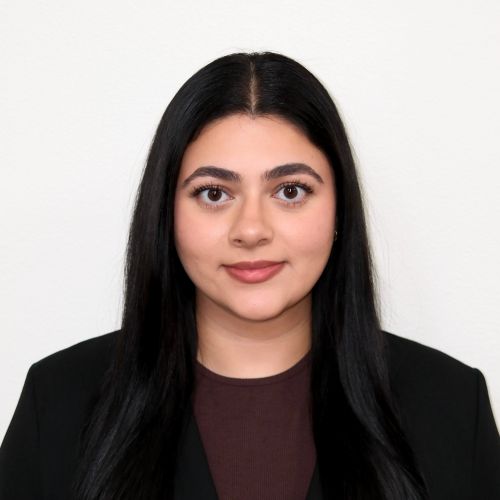
Daveena Kaur
saran8@uw.edu
Exploring Abortion Access in Washington State: A Statewide Landscape and Services Analysis
PRACTICUM SITE: University of Washington Medical Center
SITE SUPERVISOR: Dr. Lyndsey Benson and Dr. Emily Godfrey
DEPARTMENT: Health Systems and Population Health
FACULTY ADVISER: Clarence Spigner
I am a second-year MPH student in the Department of Health Systems and Population Health with a focus on women’s reproductive health and justice, particularly abortion access and contraception self-efficacy. For my practicum at UW Medicine, I worked in collaboration with the Washington State Department of Health (WA DOH) to enhance understanding and access to abortion services across Washington state.
Initially, my project explored abortion access throughout the WWAMI region, but it became evident that Washington lacked a comprehensive view of available services. To address this gap, I conducted a statewide data collection effort, documenting clinic and organizational services, county locations, affiliations, and availability of services such as in-person and mail-order abortion pills, in-clinic procedures, and telehealth options.
Using this data, I developed an interactive stakeholder map that provides a detailed overview of abortion care across the state. This map serves as a critical resource for stakeholders, aiding efforts to understand service availability and improve abortion access statewide.
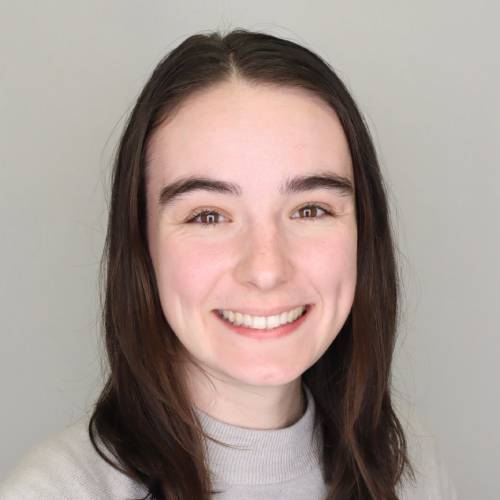
Hana Neutz
hneutz@uw.edu
Maternal and Child Health Donor Landscaping in Latin America and the Caribbean
PRACTICUM SITE: PATH
SITE SUPERVISOR: Ellen Browder-Long
DEPARTMENT: Global Health
FACULTY ADVISER: Jennifer Slyker
I am a second-year MPH-Global Health candidate interested in helping to improve access and quality of healthcare for children and mothers globally. For my practicum, I worked with PATH, an International Health NGO, specifically the Integrated Maternal and Child Health Development Team (IMCHD). We aimed to understand the current work being done to improve Maternal and Child Health in Latin America, finding donors that have funded work in the past, and those with current calls out for submissions. Practicum activities consisted of producing a list of potential new donors and grant opportunities, writing a concept note submitted to a donor addressing the support of caregivers of young children with disabilities in Peru, and presenting my findings to the broader IMCHD team.
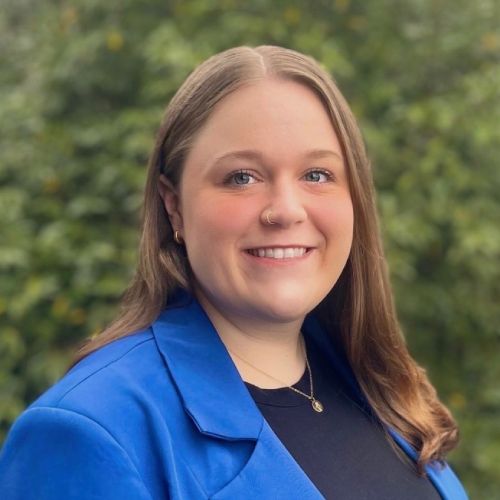
Jessica Shattuck
jps21@uw.edu
Describing Regional Disparities and Vital Sign Trends of Patients with Hypoxic-Ischemic Encephalopathy during Interfacility Pediatric Transport
PRACTICUM SITE: Seattle Children's Hospital
SITE SUPERVISOR: Dr. Rachel Umoren
DEPARTMENT: Epidemiology
FACULTY ADVISER: Dr. Daniel Enquobahrie
I am a second-year MPH student in the Department of Epidemiology with a passion for working at the intersection of epidemiologic research and clinical pediatric medicine. For my practicum, I collaborated with the Pediatric Transport Learning Laboratory (PTLL) at Seattle Children’s Hospital, which focuses on improving the care of pediatric patients during interfacility transport within a regional network. As part of my work with PTLL, I conducted a quantitative analysis to identify trends in vital sign data among neonatal transport patients diagnosed with hypoxic-ischemic encephalopathy compared to those without the diagnosis. Additionally, I expanded a previous analysis of neonatal transport disparities to include new pediatric data. These efforts resulted in a publication-ready abstract and a comprehensive report for PTLL leadership. The findings from my practicum will contribute to the growing body of pediatric transport literature and inform decision-making on interfacility transport practices for pediatric patients.

Lexi Nims
anims@uw.edu
Snohomish County Youth Listening Sessions: Understanding the Impacts of Substance Use and Youth Visions for Harm Reduction and Prevention
PRACTICUM SITE: Snohomish County Health Department
SITE SUPERVISOR: Brittany Bevis-Sciuto
DEPARTMENT: Epidemiology
FACULTY ADVISER: Vivian Hawkins
I am a second-year MPH Epidemiology student with an interest in mental and behavioral health. I completed my practicum project with the Snohomish County Health Department. The goal of my practicum project was to understand how substance use impacts youth in Snohomish County and identify solutions youth envision for harm reduction, prevention, and creating safer environments in their communities. My work involved analyzing listening sessions with youth across Snohomish County to identify key themes and recommendations and comparing these findings to data from the 2023 Washington Healthy Youth Survey. I developed several deliverables, including site-specific listening session summaries, a one-page overall project summary, tailored presentations for the Snohomish County Health Department and local community coalitions, and a recording of my community coalition presentation.
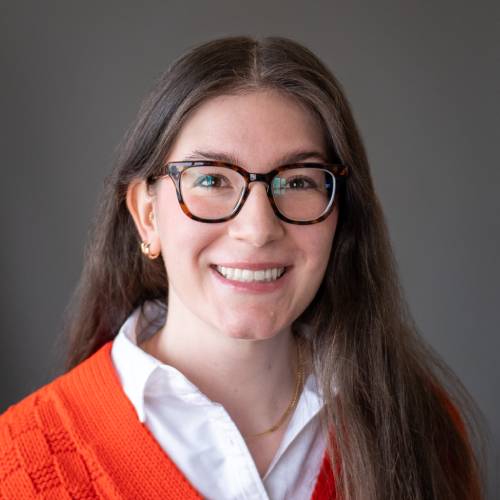
Liz Smith
smithliz@uw.edu
Expanding Access to Care for Youth with Opioid Use Disorder – An Analysis and Policy Recommendation
PRACTICUM SITE: Washington Chapter of the American Academy of Pediatrics (WCAAP)
SITE SUPERVISOR: Colleen McCarty
DEPARTMENT: Epidemiology
FACULTY ADVISER: Daniel Enquobahrie
I am a second-year MPH student in Epidemiology, Maternal and Child Health track. For my practicum, I conducted qualitative interviews with primary care pediatric providers (including pediatricians, family physicians, and Advance Practice Providers) and other relevant stakeholders to identify barriers and facilitators to providing Medications for Opioid Use Disorder (MOUD) to adolescents. I am currently in the process of analysis, and plan to use the findings to make policy recommendations aimed at overcoming obstacles hindering PCPs from offering MOUD to adolescents. I am enjoying the opportunity to learn about and engage in qualitative interviewing, and incredibly grateful to my site supervisor for her expertise and guidance along the way.
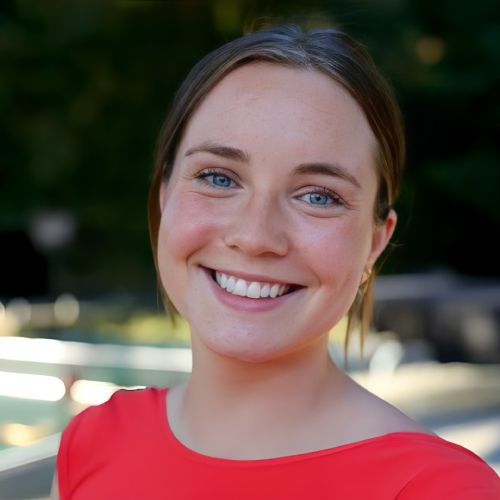
Maia Cunningham
maiac9@uw.edu
Developing Evidence-based Recommendations for Assessing Pancreatitis Pain in Pediatric Populations
PRACTICUM SITE: Seattle Children's
SITE SUPERVISOR: Tonya Palermo
DEPARTMENT: Epidemiology
FACULTY ADVISER: Daniel Enquobahrie
I am a second-year MPH student in the Department of Epidemiology. My practicum focused on effectively communicating research findings on chronic pancreatitis (CP) pain in adolescents. CP is a debilitating long-term condition that significantly impacts the quality of life in children, particularly when they struggle to communicate or manage their pain. The goal of this practicum was to develop evidence-based, culturally relevant recommendations for assessing pancreatitis pain in pediatric populations. This involved synthesizing recent research findings and analyzing data from the Chronic/Acute Pancreatitis and Monitoring of Pain and Opioid Use project (CHAMP-INSPPIRE 2) to inform clinical practices for the INternational Study Group of Pediatric Pancreatitis: In Search for a CuRE (INSPPIRE 2), a multi-site consortium.
The practicum deliverables included a presentation on best practices and recommendations for pain assessment, shared with pediatric CP physicians nationwide. Additionally, I created a newsletter to disseminate our findings to families of children diagnosed with CP.
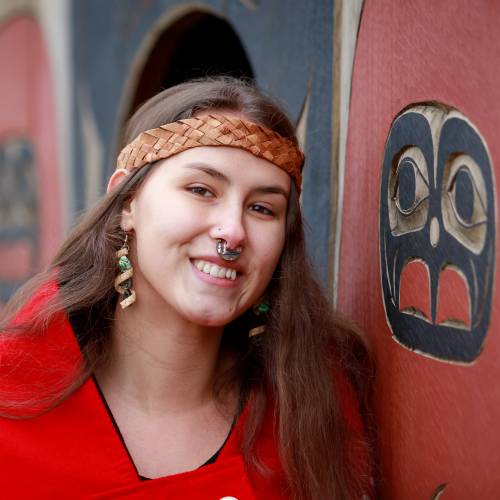
Maleah Nore
maleahnore@gmail.com
Screening for us, by us: Centering Native student voices in the development of a Native school-based universal screening
PRACTICUM SITE: Northwest Portland Area Indian Health Board
SITE SUPERVISOR: Dolores Jimerson
DEPARTMENT: Online MPH
FACULTY ADVISER: Genya Shimkin
I am a second-year online MPH student interested in strengthening tribal family and cultural systems to prevent interpersonal and intrapersonal violence. My practicum project supported the creation of an adolescent SBIRT for a Native boarding school. The SBIRT (Screening for Brief Intake and Referral to Treatment) model is a universal screening model that aims to reduce or prevent substance use by identifying people who are at risk and connecting them to tiered levels of treatment or intervention. This model is a cost and time-effective approach for reducing substance use and improving health outcomes.
For my project, I am working with Native boarding school students to develop an SBIRT that will be used to screen all incoming students for priority substance use and mental health issues. It will also include conversation guides that help administering adults talk about the substance use and mental health issues identified in a way that makes youth feel respected, empowered, and supported.
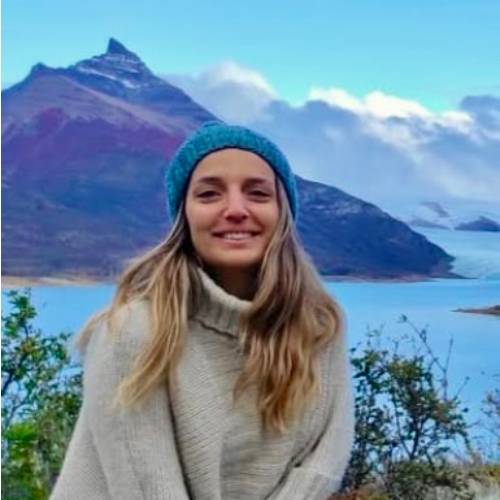
Maria Macarena Racciatti
mmraccia@uw.edu
Enhancing Pediatric Traumatic Brain Injury Care in Argentina: Leveraging Pediatric Guideline Adherence through the PEGASUS Program
PRACTICUM SITE: University of Washington
SITE SUPERVISOR: Monica Vavilala
DEPARTMENT: Epidemiology
FACULTY ADVISER: Daniel Enquobahrie
I am a second-year MPH student in the Department of Epidemiology, specializing in the Maternal and Child Health track. As a pediatrician, my primary interest has always been in children's health. For my practicum, I focused on how epidemiology skills can help better interpret prevalent diseases, specifically pediatric traumatic brain injury (TBI), which is a leading cause of childhood mortality, especially in low- and middle-income countries. I worked with the PEGASUS program, which researches guideline adherence in TBI management in South America, my home region. My project analyzed factors contributing to guideline adherence in TBI management, assessed the association between these factors and adherence rates, and evaluated the PEGASUS program’s performance through interviews with site PIs. This work will help improve TBI treatment dynamics and guide the development of more effective interventions for South American populations.
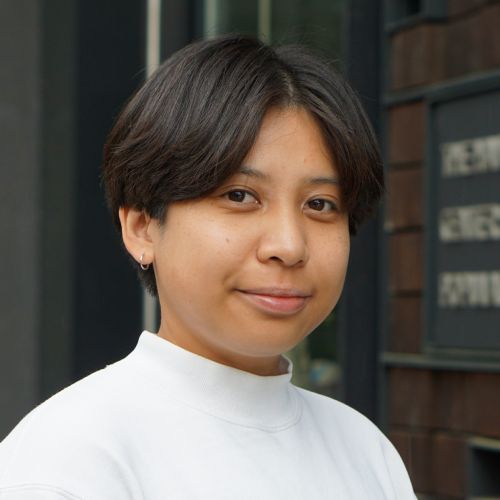
Miki Suarez-Thai
mikist@uw.edu
A Case Study on the Impact of the Trump Administration on Youth Gender-Affirming Care in Seattle, WA
PRACTICUM SITE: University of Washington
SITE SUPERVISOR: Multiple
DEPARTMENT: Nutrition
FACULTY ADVISER: Anne Lund
I am a second-year MPH Nutrition student and dietetic intern at UW Medicine Northwest. My practicum is a case study documenting the effects of anti-trans executive orders on youth gender-affirming care in Seattle, between January and February of 2025. This case study serves as a record of anti-trans executive orders, impacts on gender-affirming care and other trans rights, and the response from stakeholders – government officials, healthcare systems, and members of the community. The main aim was creating a timeline of events that includes: the intent of these executive orders, how the executive orders are enforced and upon which institutions (particularly documenting changes to Seattle Children’s Gender Clinic), news reporting of events, response from WA state Attorney General and other government officials in lawsuits against the executive orders, and response from the community (namely through Reddit, a popular online forum).
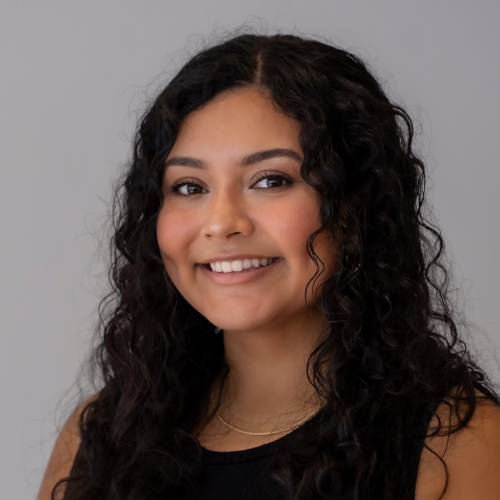
Samantha Garcia Perez
sgarciap@uw.edu
Developing and Implementing Program Evaluation Tools for the Black Infant Health Program
PRACTICUM SITE: Tacoma-Pierce County Health Department
SITE SUPERVISOR: Emily Chandler
DEPARTMENT: Epidemiology
FACULTY ADVISER: Daniel Enquobahrie
I am a second-year MPH candidate in the Epidemiology-Maternal and Child Health track at the University of Washington. My practicum was with the Black Infant Health (BIH) program at the Tacoma-Pierce County Health Department, a community-centered initiative that supports Black families from pregnancy through the first year postpartum. During my practicum, I contributed to BIH’s program evaluation efforts by developing, implementing, and analyzing client and community health worker satisfaction surveys, as well as focus groups with program staff and the Community Advisory Board (CAB). These tools provided valuable feedback to guide program improvements, strengthen internal processes, and advocate for sustainable funding.
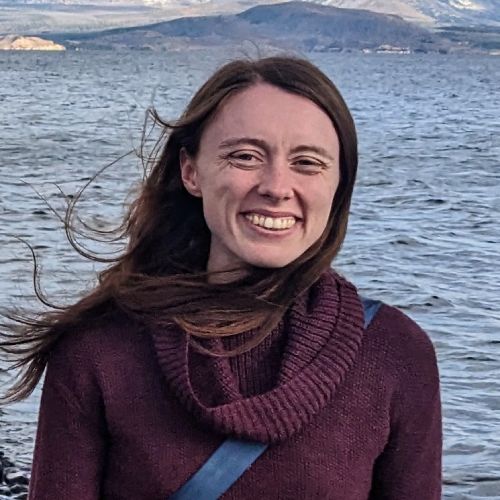
Stephanie Lippincott
lippinst@uw.edu
Examining Barriers to Women's Health Screening for Uninsured and Underinsured Women in Marion and Polk Counties
PRACTICUM SITE: Salem Free Clinics
SITE SUPERVISOR: Jennie Reid
DEPARTMENT: Online MPH
FACULTY ADVISER: Molly Firth
I am a pediatric nurse pursuing my master's degree through the University of Washington's online MPH program. Currently, I work at a children's hospital in Portland, Oregon, but my goal is to transition into program development for community-based organizations after graduation.
For my practicum, I worked with Salem Free Clinics, a safety net clinic that provides no-cost care to the uninsured and underinsured populations in Marion and Polk Counties. I assisted them in conducting an evaluation to understand the barriers preventing women in their patient population from getting mammograms and pap smears. The evaluation was multi-faceted and included qualitative interviews with patients, administering surveys in both Spanish and English to current and former patients, and conducting key informant interviews with clinic staff and partner organizations. I used the data from this evaluation to create an action plan, offering tailored and feasible recommendations on how the clinic could reduce barriers to screening for women in their community.

Alexandra Eisen
ameisen@uw.edu
Washington Trails Association and WA State Department of Health Tick Report Mapping Project
PRACTICUM SITE: Washington State Department of Health
SITE SUPERVISOR: Elizabeth Dykstra
DEPARTMENT: Epidemiology
FACULTY ADVISER: Julianne Meisner
I am a second-year MPH student in the Department of Epidemiology with an interest in zoonotic and vector-borne disease surveillance. I collaborated with the Washington State Department of Health zoonotic and vector-borne disease team on a project with the Washington Trails Association (WTA) to map tick sightings reported by hikers across the state.
Using R, I developed code to text-mine keywords from free responses submitted by hikers to the WTA and created an interactive map in ArcGIS to visualize the distribution and frequency of tick sightings across Washington. Additionally, we investigated the association between tick sightings and wildfire activity within the state. This project highlights the value of detailed and consistent reports from the hiking community and underscores the critical role of community involvement in advancing public health research.
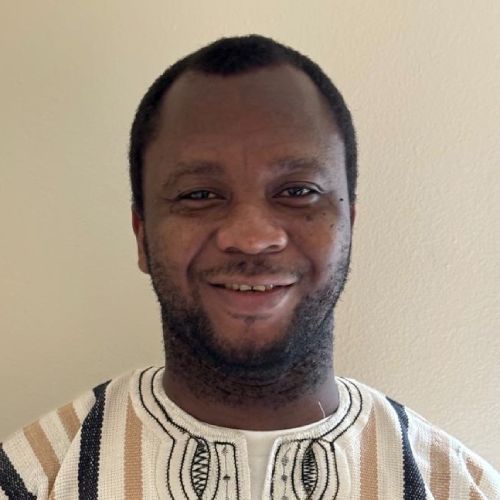
Alie Vandi-tarawally
avandi@uw.edu
Strengthening Health Informatics Capacity in LMICs through the 3IG Framework
PRACTICUM SITE: University of Washington
SITE SUPERVISOR: Jen Antilla
DEPARTMENT: Global Health
FACULTY ADVISER: Nancy Puttkammer
I am a second-year MPH student in the Department of Global Health at the University of Washington, pursuing my studies as a Fulbright fellowship recipient from Sierra Leone. For my practicum with the DIGI-TEAM at I-TECH, University of Washington, I had the privilege of collaborating with global health, epidemiology, and informatics experts from institutions such as the Centers for Disease Control and Prevention (CDC), the University of Washington, and partners across Africa, Europe, and North America.
In this role, I led the development of context-specific training materials designed to enhance the analytical skills of Field Epidemiologists (FEs) working with large surveillance datasets. The training focused on leveraging informatics tools such as R, Excel, Kobo Toolbox, and the District Health Information System Version 2 (DHIS2). Utilizing Scribe, a tool that captures mouse clicks through screenshots, I created step-by-step tutorials to build the analytical capacity of FEs in remote settings. These materials aimed to strengthen disease response efforts in alignment with the 7-1-7 strategy.
The project's deliverables included epidemiological curves, disease burden assessments, and integrated data analyses. These outputs were presented to subject matter experts (SMEs) during review sessions to collect feedback and refine the training materials. The project received high praise at the Informatics Curriculum Validation event held in August 2024 at the CDC headquarters in Atlanta, Georgia.
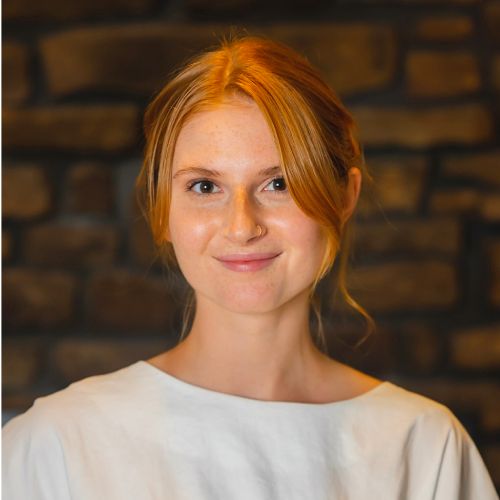
Cayenne Buell
buellcb@uw.edu
Washington Food Safety Center of Excellence Enteric Disease Podcast Development
PRACTICUM SITE: Office of Communicable Disease Epidemiology, Washington Food Safety Center of Excellence
SITE SUPERVISOR: Piper Brase
DEPARTMENT: Epidemiology
FACULTY ADVISER: Janet Baseman
I am a second-year MPH student in the Department of Epidemiology. For my practicum, I worked with the Washington Integrated Food Safety Center of Excellence (CoE), a division of the Washington State Department of Health dedicated to strengthening the training and surveillance practices of epidemiologists. During this project, I contributed to Foodborne, a podcast for early-career epidemiologists focused on historical foodborne and enteric disease outbreaks. My work included scripting an episode on the 2016 E. coli outbreak linked to flour, creating an interview guide for the epidemiologists who led the investigation, and developing web materials to complement the first season's episodes. This experience allowed me to support the CoE’s mission of disseminating information about foodborne illnesses through a creative platform. For those interested, Foodborne debuts in January 2025!
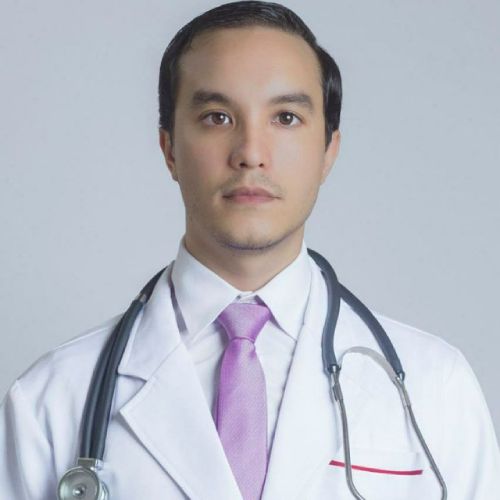
Gaetan Khim
gkhim@uw.edu
The Environmental Health Field Kit Project
PRACTICUM SITE: Washington Department of Health
SITE SUPERVISOR: Hillary Booth
DEPARTMENT: Epidemiology
FACULTY ADVISER: Stephen Hawes
I am a second-year MPH candidate in the Department of Epidemiology. For my practicum, I collaborated with the Washington State Department of Health’s Food Safety Center of Excellence team on the Environmental Health Field Kit Project (EHFKP). This project focuses on identifying foods associated with specific pathogens, such as Salmonella spp., Shiga toxin-producing E. coli, and Listeria monocytogenes, during foodborne outbreaks in the United States. The EHFKP features an interactive user interface built with R, enabling users to search for foods linked to a particular pathogen and vice versa. The project supports applied foodborne surveillance efforts by providing epidemiologists with information about the diverse range of foods, including novel food vehicles, associated with specific pathogens. This tool aids in hypothesis generation during the early stages of outbreak investigations.

Gina Huynh
ghuynh24@uw.edu
Sexually Transmitted Infections Among Teens and Older Adults in Snohomish County: Data Briefs for Risk Reduction
PRACTICUM SITE: Snohomish County Health Department
SITE SUPERVISOR: Hollianne Bruce
DEPARTMENT: Epidemiology
FACULTY ADVISER: Janet Baseman
I am a second-year MPH student in the Department of Epidemiology with interests in sexually transmitted infections (STIs) and maternal and child health. For my practicum project, I collaborated with the Snohomish County Health Department to analyze STI data from the past five years, assessing trends among populations at higher risk. The findings informed the county's Sexual Health Clinic team about current trends among teens and older adults and helped generate hypotheses about STI epidemiology in these groups. My practicum deliverables included data briefs for teen and older adult populations, along with recommendations on where to focus intervention efforts.
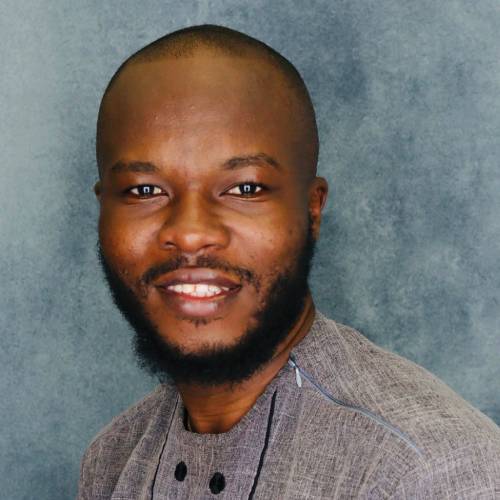
Kokou Tbah Tighankpa
kokout@uw.edu
Assessment of Contextual Factors to Implement the 7-1-7 Target in Togo: Application of Organizational Readiness for Policy Implementation (OR4PI) Framework
PRACTICUM SITE: EPIMOD - Togo
SITE SUPERVISOR: Tchaa Abalo Bakai
DEPARTMENT: Global Health
FACULTY ADVISER: Yanfang Su
Kokou Tbah Tighankpa, MD is an MPH candidate at the School of Public Health within the Department of Global Health. He conducted his practicum project in Togo, where his focus was on Assessing Contextual Factors, to Implement the 7-1-7 Target in Low- and Middle-Income Countries (LMICs): Application of Organizational Readiness for Policy Implementation (OR4PI) Framework. 7-1-7 stands for 7 days towards detecting a probable outbreak, 1 day to start an epidemiological investigation, and 7 days to start field operation, which Togo has recently piloted. As a Togolese, Kokou Tbah has dreamt of a robust health system that is more resilient against infectious diseases and is ready to respond quickly in times of need. Hence, this project aims to explore the facilitating and hindering factors for implementing the 7-1-7 target approach for outbreak and pandemic early action in rural and urban Togo.
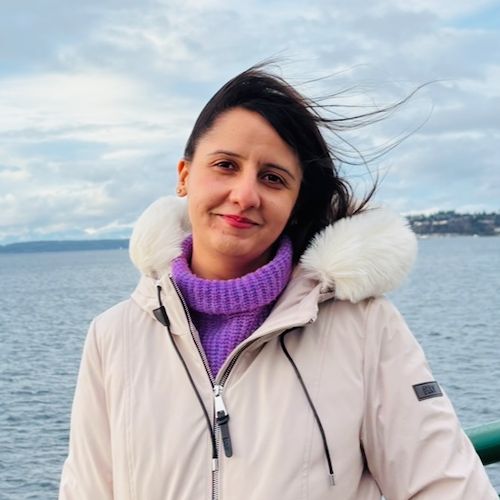
Parul Vaidya
Parulv@uw.edu
Enteric Diseases in Carceral Settings
PRACTICUM SITE: Washington Integrated Food Safety Center of Excellence
SITE SUPERVISOR: Hillary Booth
DEPARTMENT: Epidemiology
FACULTY ADVISER: Janet Baseman
I am a second-year MPH student in Epidemiology with a focus on infectious disease surveillance and public health practice. For my practicum, I collaborated with the Washington Integrated Food Safety Center of Excellence at the Washington State Department of Health on a project to strengthen foodborne illness outbreak detection and response in carceral facilities.
My work involved conducting a comprehensive literature review to examine trends and challenges associated with foodborne illness outbreaks in carceral settings across the United States. Additionally, I developed and administered a structured questionnaire to local health jurisdictions in Washington State to identify key contacts within carceral facilities and enhance communication and coordination for outbreak response.
This experience deepened my understanding of the intersection between public health and underserved populations, contributing to efforts to promote health equity and improve disease prevention strategies in these unique and often overlooked settings.

Shalom Mhlanga
smhlanga@uw.edu
Washington Food Safety Center of Excellence Enteric Disease Podcast Development
PRACTICUM SITE: Washington State Department of Health
SITE SUPERVISOR: Piper Brase
DEPARTMENT: Health Systems and Population Health
FACULTY ADVISER: Janet Baseman
I am a second-year MPH student in the Health Systems and Population Health program, specializing in the Health Systems and Policy track, with interests in policy, technology, epidemiology, health communication, and informatics. For my practicum, I partnered with the Washington State Department of Health and the Washington Integrated Food Safety Center of Excellence to develop "Foodborne", an educational podcast series for early-career public health professionals. My contributions included writing the full script for the frozen stuffed chicken products outbreak episode for Season 2, the "Advice" episode script for Season 1, and creating website materials for two Season 1 episodes on cantaloupe and hazelnut outbreaks. This project allowed me to apply my skills in outbreak investigation research, scriptwriting, and health communication while exploring innovative ways to make public health education engaging and accessible to emerging professionals.
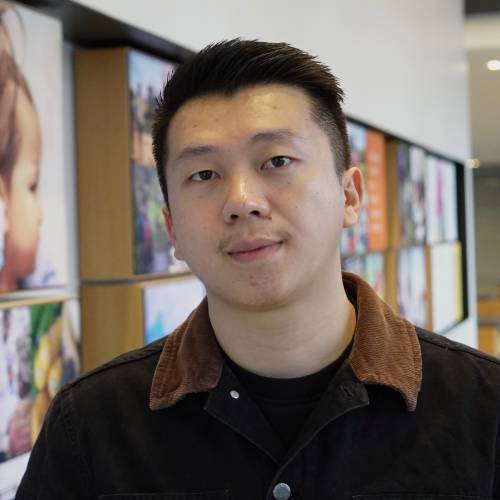
Ye Htet Naing
ynaing@uw.eduu
Mortality Risks in Multidrug-Resistant Tuberculosis and Extensively Drug-Resistant Tuberculosis: An Updated Systematic Review for the Global Burden of Disease Study
PRACTICUM SITE: IHME
SITE SUPERVISOR: Amanda Novotney
DEPARTMENT: Global Health
FACULTY ADVISER: Dr.Hmwe Hmwe Kyu
I am a second-year MPH student in the Global Health Program. My interests include HIV, tuberculosis(TB) and other infectious diseases. During my practicum at IHME, I contributed to a project on drug-resistant TB mortality risks, focusing on multidrug-resistant (MDR-TB) and extensively drug-resistant (XDR-TB) tuberculosis. My responsibilities include conducting a systematic review to update the Global Burden of Disease(GBD) Study's evidence base, and registering the review protocol in PROSPERO. Through this practicum, I gained hands-on experience with systematic review methodologies and developed technical skills to address global health challenges.
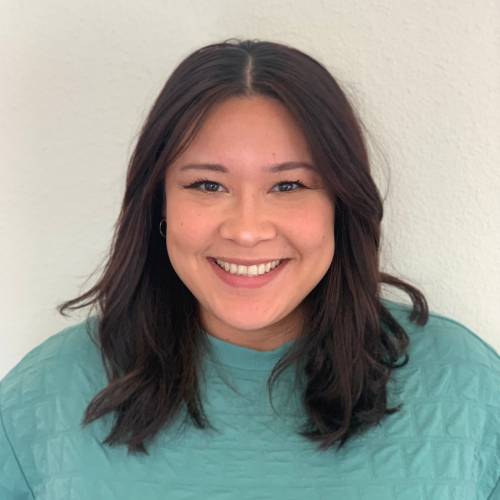
Aileen Andrade-Torres
aandrad3@uw.edu
Cultivating Health Equity in Rural Washington: Developing Outreach Strategies to Reduce Environmental Health Risks for Families
PRACTICUM SITE: Northwest Pediatric Environmental Health Specialty Unit (NW PEHSU)
SITE SUPERVISOR: MaryKate Cardon
DEPARTMENT: Epidemiology
FACULTY ADVISER: Catherine Karr (DEOHS)
I am a second-year MPH candidate in the Department of Epidemiology (Maternal and Child Health track). My research interests focus on how the built and social environments of neighborhoods impact early childhood health outcomes and influence children's ability to thrive throughout their life course. For my practicum, I worked with the Northwest Pediatric Environmental Health Specialty Unit (NW PEHSU) with outreach efforts addressing environmental health disparities in Yakima Valley, Washington. I curated a bilingual health education resource library and led outreach events at local health fairs, providing families with accessible and culturally relevant education on the topic of air quality during wildfire smoke events. Additionally, I conducted an informal community assessment at the Toppenish Health Fair, where families identified their top environmental and children’s health concerns. This feedback informed actionable recommendations to enhance NW PEHSU’s community engagement strategies and future research in addressing pressing environmental health challenges affecting this vulnerable community.
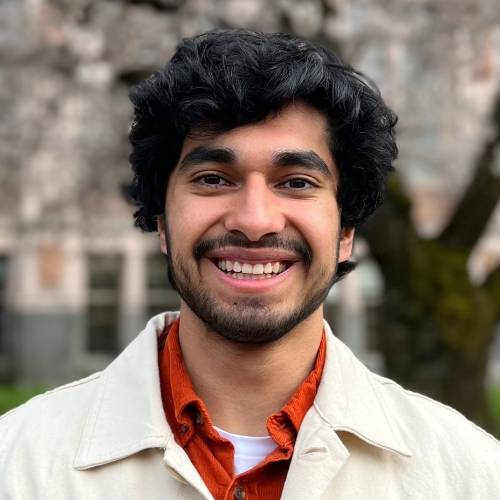
Julio Ramos-Vazquez
julio17@uw.edu
Applying World Café Methodology to Assess the Impact of Wildfire Smoke in Spokane, WA
PRACTICUM SITE: Collaborative on Extreme Event Resilience
SITE SUPERVISOR: Anna Reed, MPH
DEPARTMENT: Epidemiology
FACULTY ADVISER: Alyson Littman, PhD, MPH
I am a second-year MPH student in the Department of Epidemiology. My public health interests of environmental health and air quality have guided me to pursue a community-involved experience with the Collaborative on Extreme Event Resilience at the UW. Partnered with the Institute for Climate, Water, and the Environment at Gonzaga University, my practicum experience revolved around hosting and collecting data during the Smoke Ready Symposium. Over the summer, we gathered community partners from around Washington state to engage in a World Café style symposium regarding wildfire smoke. My role during this event was a notetaker. After the event, I served to code transcripts along with other UW team members. Our findings will be compiled and developed into qualitative research articles. Findings from the symposium will lead to policy change in communities to address vulnerable populations, as well as barriers and facilitators to wildfire smoke resilience.
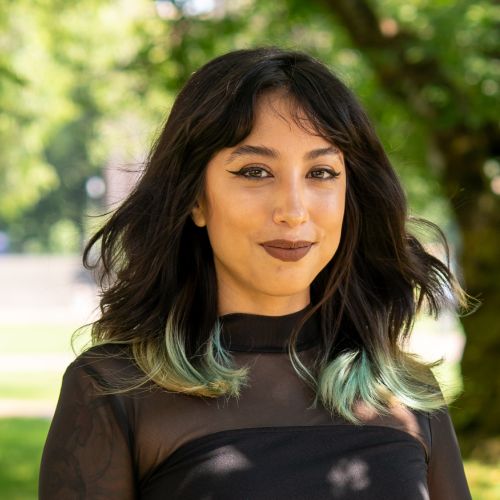
Agus Vega
mvega2@uw.edu
Increasing Awareness and Health Screenings for Hypertension and Type 2 Diabetes Mellitus Among Latinx Adults Living in WA State
PRACTICUM SITE: Latino Center for Health
SITE SUPERVISOR: Dr. Leo Morales
DEPARTMENT: Global Health
FACULTY ADVISER: Jason Daniel Ulloa
I am Agus, a second-year MPH student in the Global Health department. Driven by a passion for reproductive justice and equity, my research and activism primarily focus on abortion and LGBTQI+ rights. During my practicum with the Latino Center for Health, I gained valuable insights into conducting community health screenings, outreach activities, and culturally responsive research for Latinx communities in Washington State at risk of non-communicable diseases.
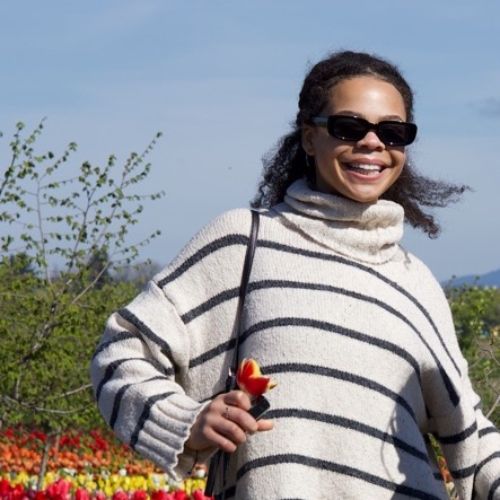
Amaya Gatling
gatling@uw.edu
Advancing Public Health Through U.S. Ratification of International Treaties
PRACTICUM SITE: American Public Health Association
SITE SUPERVISOR: Omid Bagheri Garakani
DEPARTMENT: Global Health
FACULTY ADVISER: Amy Hagopian
I am a second-year Global Health MPH student pursuing a Graduate Certificate in Global Health of Women, Adolescents, and Children (WACh). I am passionate about human rights, WACh, and sexual and reproductive health. For my practicum, I am developing a policy statement for the American Public Health Association (APHA), sponsored by the International Health section. APHA policy statements are designed to influence U.S. policy. My statement explores the potential population health benefits of U.S. ratification of international treaties, focusing on the Convention on the Rights of the Child and the Convention on the Elimination of All Forms of Discrimination Against Women. The U.S. government’s history of treaty absenteeism deprives its residents of access to international accountability mechanisms.
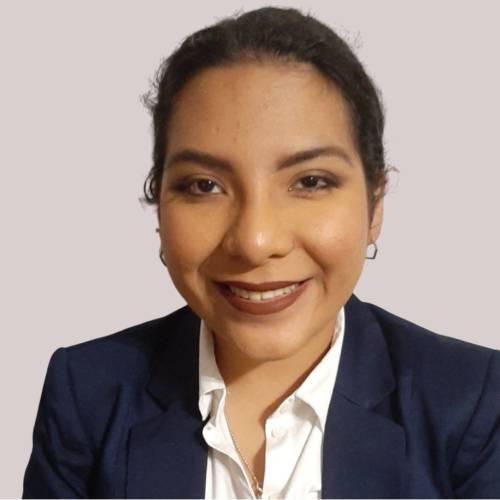
Ana Castillo Soto
anacasts@uw.edu
Improving the Evidence Base for Health Resource Allocation Decisions in Low- and Middle-Income Countries
PRACTICUM SITE: Bergen Center for Ethics and Priority Setting
SITE SUPERVISOR: Kjell Arne Johansson MD PhD
DEPARTMENT: Global Health
FACULTY ADVISER: David Watkins MD MPH
I am a second-year MPH student in the Public Health Genetics program with a background as a family physician. My interest lies in exploring the barriers and facilitators to genetic service delivery in Taiwan compared to the U.S.
During my practicum at the Ethics Center at National Taiwan University Hospital, I collaborated with the center's chief to conduct an interview study involving 12 healthcare professionals experienced in genetic testing in Taiwan. My responsibilities included designing the interview guide, recruiting participants, conducting the interviews, coding the transcripts, and performing the final thematic analysis. After the interviews, I developed educational materials to introduce genetic testing and fundamental genomic concepts to non-geneticist healthcare workers. For my thesis, I will expand this project by conducting a survey study on a larger sample of physicians to evaluate their experiences and attitudes toward genetic service delivery.
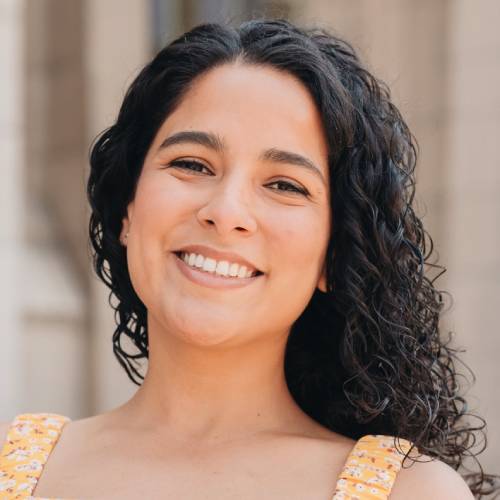
Andrea Rivas
arivasn@uw.edu
Assessing Food Availability and Accessibility in Chelan and Douglas Counties, Washington
PRACTICUM SITE: Chelan-Douglas Health District
SITE SUPERVISOR: Kristen N. Hosey DNP, RN, PHNA-BC
DEPARTMENT: Epidemiology
FACULTY ADVISER: Janet Baseman, PhD
During my practicum with the Chelan-Douglas Health District, I gained invaluable hands-on experience addressing food access inequities. The project's goal was to identify areas within Chelan and Douglas Counties that qualified as food deserts and provide actionable recommendations to inform nutrition assistance programs like SNAP and WIC. By conducting windshield surveys, analyzing food pricing data, and evaluating geographic and economic barriers, I developed a deeper understanding of how systemic inequities affect food access in underserved areas. This experience strengthened my ability to conduct comprehensive needs assessments, use mixed-methods approaches to collect and analyze data, and collaborate effectively within interdisciplinary teams. Observing the interplay between social determinants of health, geographic isolation, and economic disparities enriched my perspective on health equity.
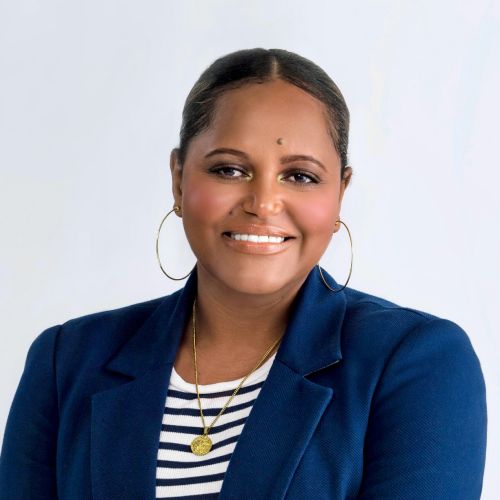
Beth Obssie
bobssie@uw.edu
Advancing Health Equity Through Community Health Worker Integration
PRACTICUM SITE: Providence
SITE SUPERVISOR: Hannah Lobingier
DEPARTMENT: Health Systems and Population Health
FACULTY ADVISER: Molly Firth
I am a second-year Master of Public Health student in Health Systems and Population Health, dedicated to advancing health equity by addressing social determinants of health (SDOH) at a systems level. My practicum with Providence’s Medicaid Equity team involves supporting the integration of Community Health Workers (CHWs) to bridge gaps in care and promote equitable health outcomes. In collaboration with interdisciplinary teams, I work to identify and address barriers to care, ensuring CHWs are equipped to connect individuals to essential resources such as housing, food security, and transportation. This initiative strengthens Medicaid’s capacity to serve underserved populations by embedding equity-focused, evidence-based interventions into care delivery. Through this project, I am contributing to the development of sustainable, community-driven solutions that reduce health disparities and improve access to quality care for all.
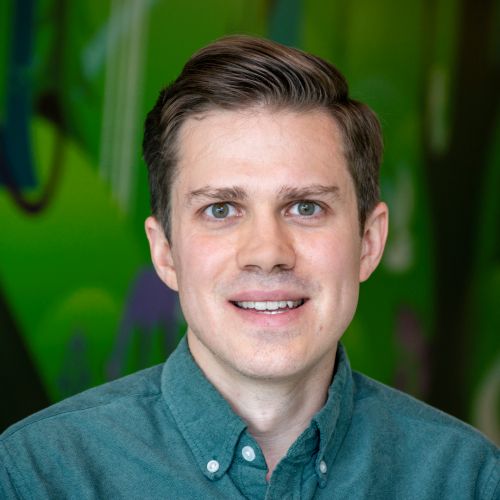
D. Taylor Hendrixson
dhendrix@uw.edu
Development of an Educational Needs Assessment and Collaborative Training Modules for Neonatology Fellowship Trainees
PRACTICUM SITE: University of Nairobi Faculty of Health Sciences
SITE SUPERVISOR: Dalton Wamalwa
DEPARTMENT: Epidemiology
FACULTY ADVISER: Maneesh Batra
I am a neonatologist and pediatric infectious disease physician-scientist, as well as a second-year MPH Epidemiology student focused on maternal-child health. My primary interest is improving the health of mothers, infants, and young children in resource-limited settings through equitable, bilateral educational and research collaborations.

Eamonn McGonigle
eamomcg@uw.edu
Evaluation and Implementation of Rapid HIV Testing Services in the Hepatitis Educations Project's care continuum
PRACTICUM SITE: Hepatitis Education Project
SITE SUPERVISOR: Kimberly Taber
DEPARTMENT: Global Health
FACULTY ADVISER: Sara Glick
I am a second year MPH Global Health candidate with a focus in HIV, maternal and child health, and infectious disease. During my practicum in fall 2024, I worked at the Hepatitis Education Project in three different capacities. Primarily, I worked to build an implementation package for the rollout of rapid HIV testing at their Central District office. Currently HEP provides rapid Hepatitis screening alongside a syringe service program, buprenorphine clinic, drug checking and unhoused encampment outreach. During my time there I met with community partners and health department officials to understand and complete the process of rolling out a testing program and building client-facing educational materials.
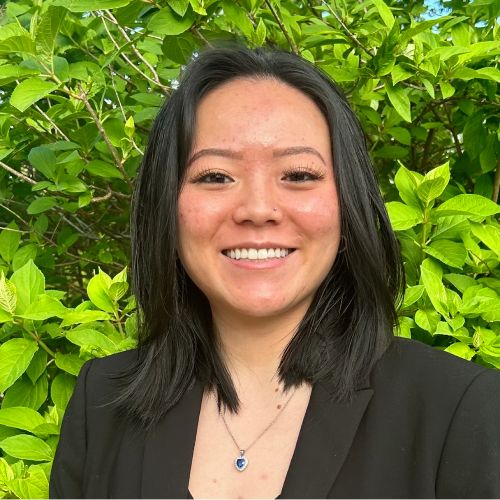
Emily Meng
emeng@uw.edu
It's Your Market: A Toolkit on Peer-to-Peer Outreach to Promote SNAP and SNAP Market Match at Farmers Markets
PRACTICUM SITE: Public Health - Seattle & King County
SITE SUPERVISOR: Seth Schromen-Wawrin
DEPARTMENT: Health Systems and Population Health
FACULTY ADVISER: Mriuna Buta
I am a second-year MPH candidate in Health Systems and Population Health with a focus on creating equitable food systems to enhance nutrition security for diverse communities. For my practicum, I developed and designed a toolkit outlining the process of establishing a peer-to-peer outreach program to promote the use of SNAP and SNAP Market Match at farmers markets in King County. The toolkit was based on a peer-to-peer outreach program implemented by the Healthy Eating, Active Living (HEAL) team at Public Health – Seattle & King County in 2022 and 2023. The finalized toolkit has been published and is now available to SNAP-Ed providers seeking to create their own peer-to-peer outreach programs.
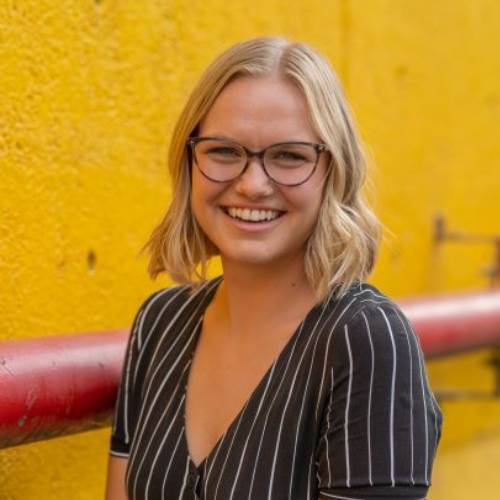
Emmalie Griswold
emgris@uw.edu
Community Engagement in Abortion Access Research
PRACTICUM SITE: Access, Delivered
SITE SUPERVISOR: Anna Fiastro, MPH, PhD
DEPARTMENT: Health Systems and Population Health
FACULTY ADVISER: Clarence Spigner
I am a second-year MPH student in the Health Systems and Population Health department with an interest in reproductive health policy and advocacy. For my practicum experience, I worked with the University of Washington Access, Delivered Research Initiative, housed in the Department of Family Medicine, on a project aimed at understanding and describing the experiences of individuals who are forced to travel across state lines to access abortion care. I had the opportunity to gather and lead a community advisory board made up of a group of abortion advocates who helped inform our study practices.
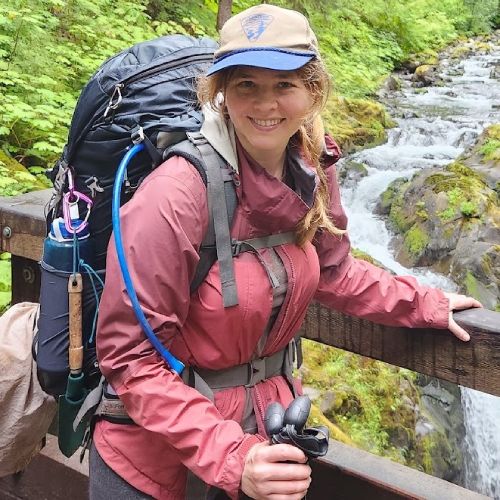
Florence Williams
fwilli2@uw.edu
Disseminating The Works of Porsesh Policy Research Institute
PRACTICUM SITE: Porsesh Policy Research Institute
SITE SUPERVISOR: Ehsan Shayegan
DEPARTMENT: Health Systems and Population Health
FACULTY ADVISER: Miruna Buta
I am a student in the HSPoP MPH program, specializing in the Social and Behavioral Sciences concentration. While searching for a practicum project, I was drawn to Porsesh Policy Research Institute (PR) because of the opportunity it offered to explore new areas in global health, refugee health, and human rights. Throughout my practicum, I have helped manage operations for several PR events, including a panel on LGBTQ rights in Afghanistan. I have also created dissemination materials to share PR's research insights through social media, video, and writing.
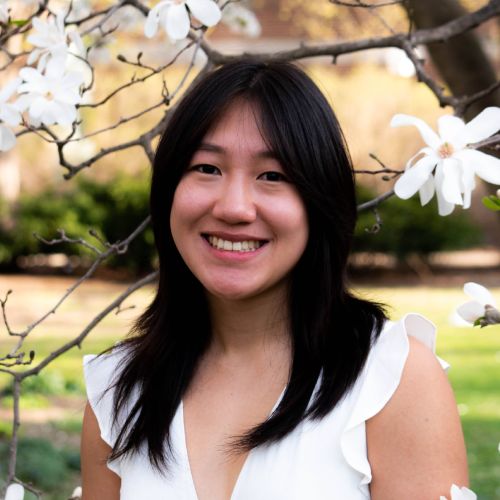
Gina Liu
liugina@uw.edu
Assessing Health Care Experiences of Caregivers with Limited English Proficiency
PRACTICUM SITE: SEIU 775 Benefits Group
SITE SUPERVISOR: Kate Causey
DEPARTMENT: Health Systems and Population Health
FACULTY ADVISER: Miruna Buta
I am a second-year MPH candidate in the Health Systems and Population Health Department, with a concentration in Health Services and Policy. I worked with the SEIU 775 Benefits Group, which provides training, healthcare benefits, and continuing education to unionized caregivers in Washington State. Using data from a qualitative interview guide translated into Russian, Spanish, and Korean, I contributed to a codebook to assess the healthcare experiences and challenges of caregivers with limited English proficiency (LEP). I then coded and thematically analyzed the transcripts, identifying key themes related to caregivers' access to healthcare services, including interpretation and in-language care. My final deliverable was drafting the introduction for the report, which included recommendations for the organization.
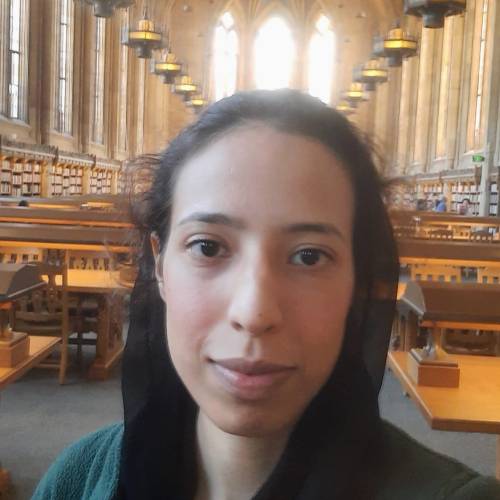
Hafsa Zia
hz148@uw.edu
Examining, completing and submitting documentation for the UW Timothy A. DeRouen Center for Global Oral Health to become a World Health Organization (WHO) Collaborating Center.
PRACTICUM SITE: Timothy A. DeRouen Center for Global Oral Health
SITE SUPERVISOR: Dr. Frank Roberts
DEPARTMENT: Epidemiology
FACULTY ADVISER: Ana Lucia Seminario
I am a second-year MPH student in Epidemiology at the University of Washington, with a background in dentistry from Pakistan. My practicum project is with the University of Washington Timothy A. DeRouen Center for Global Oral Health, which aims to improve oral and craniofacial health globally through a strategic partnership with the World Health Organization (WHO). The DeRouen Center seeks to obtain WHO Collaborating Center designation, leveraging its expertise to support various functions, including research and policy. My role involves highlighting the need to address global oral health issues, particularly in Low and Lower Middle-Income Countries, elaborating on the support the DeRouen Center can provide, and examining, completing and submitting documentation for the DeRouen Center to become a WHO Collaborating Center.
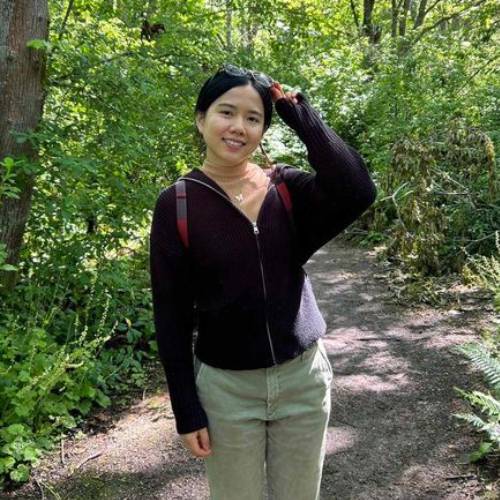
I-Ling Chen
cheni4@uw.edu
Predictive Genetic Testing in Taiwan: A Qualitative Study of Taiwanese Medical Professionals’ Perspectives and Knowledge
PRACTICUM SITE: National Taiwan University Hospital
SITE SUPERVISOR: Daniel Fu-Chang Tsai
DEPARTMENT: Public Health Genetics
FACULTY ADVISER: Malia Fullerton
I am a second-year MPH student in the Public Health Genetics program with a background as a family physician. My interest lies in exploring the barriers and facilitators to genetic service delivery in Taiwan compared to the U.S.
During my practicum at the Ethics Center at National Taiwan University Hospital, I collaborated with the center's chief to conduct an interview study involving 12 healthcare professionals experienced in genetic testing in Taiwan. My responsibilities included designing the interview guide, recruiting participants, conducting the interviews, coding the transcripts, and performing the final thematic analysis. After the interviews, I developed educational materials to introduce genetic testing and fundamental genomic concepts to non-geneticist healthcare workers. For my thesis, I will expand this project by conducting a survey study on a larger sample of physicians to evaluate their experiences and attitudes toward genetic service delivery.
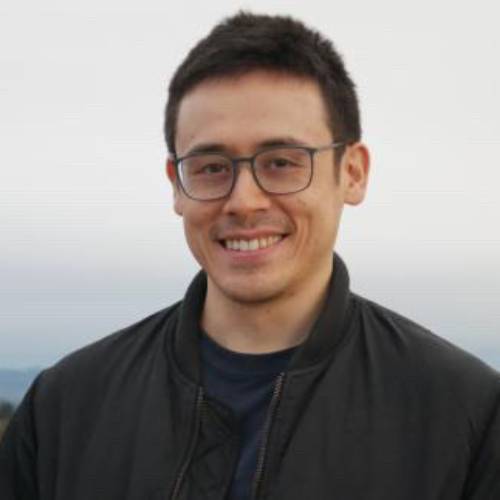
Joseph Lachman
jlachman@uw.edu
Policy Recommendations for Reducing Undocumented Immigrant Healthcare Access Disparities in Washington State
PRACTICUM SITE: Northwest Health Law Advocates
SITE SUPERVISOR: Lee Che Leong
DEPARTMENT: Health Systems and Population Healt
FACULTY ADVISER: Molly Firth & Genya Shimkin
As the Policy Manager at Asian Counseling and Referral Service, where I have worked since 2017, I developed a strong interest in healthcare access for immigrant communities, and especially undocumented immigrant community members who are systematically excluded from social welfare programs at multiple levels of government. My practicum, in partnership with Northwest Health Law Advocates, focuses on the rollout of the Apple Health Expansion, which has allowed around 12,000 undocumented people in Washington to receive health insurance. I spoke with staff at several community-based organizations serving Asian immigrant communities to understand the barriers community members faced and create a white paper with policy recommendations for the Health Care Authority and Health Benefit Exchange. This does not address all affordability issues, and so I am also creating an accompanying presentation and one-pager that explains issues that immigrants are dealing with while under the 5-year bar on accessing many federal benefits.
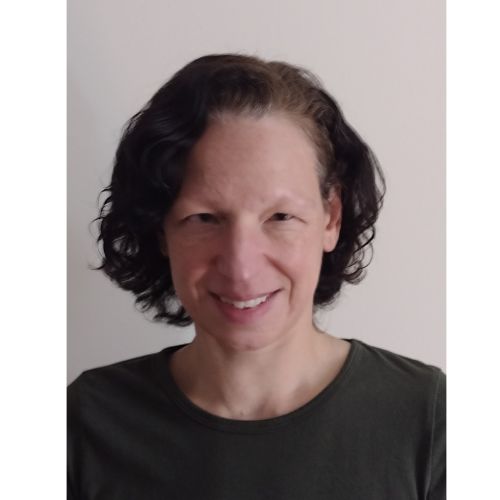
Karen Krol
krol0996@uw.edu
Culturally Relevant Recipe Development for Seattle Farm to Preschool
PRACTICUM SITE: Seattle Farm to Preschool
SITE SUPERVISOR: Kelly Okumura and Tanya Fink, MS, RD
DEPARTMENT: Nutrition
FACULTY ADVISER: Anne Lund
I’m Karen Krol, a second-year MPH student in the Food Systems, Nutrition, and Health Program. My interests include food equity, food justice, food sovereignty, and nonprofit work supporting these efforts. I completed my practicum during the summer and autumn quarters of 2024 with Seattle’s Farm to Preschool (F2P) Partnership, whose mission is to “provide children and families with access to fresh local food and learning opportunities that celebrate food cultures and invest in our local farm economy.”
To support this mission, I developed a portfolio of culturally relevant recipes featuring seasonal Pacific Northwest produce. These recipes will be used to enhance outreach across F2P platforms, including nutritional education at preschool sites, printed materials for weekly produce bags, the online recipe database, and as a long-term resource for preschool educators and meal providers. Additionally, I created a portfolio of new produce items to expand F2P’s online Wholesale Vegetable Quantity Tool, incorporating a review of existing data and providing recommendations to better align with Child and Adult Care Food Program meal pattern requirements.
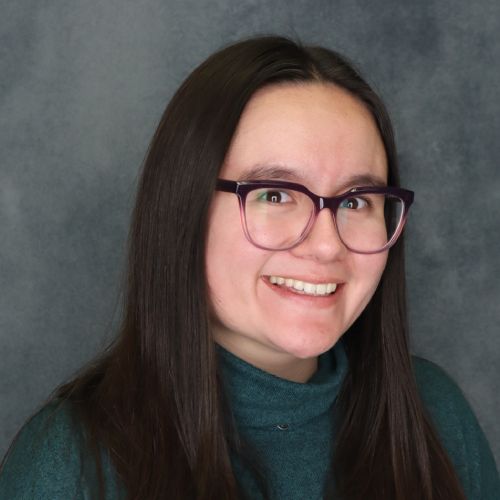
Kimiko Oshima
oshimak@uw.edu
5-Year Comprehensive Cancer Action Plan of Washington State
PRACTICUM SITE: Washington State Department of Health
SITE SUPERVISOR: Katie Treend
DEPARTMENT: Health Systems and Population Health
FACULTY ADVISER: Miruna Buta
I am a second-year MPH student in the Health Systems and Population Health Department, specializing in the Social and Behavioral Sciences track. For my practicum, I worked with the Washington State Department of Health's Comprehensive Cancer Control Program to contribute to the 5-Year Cancer Action Plan of Washington State (CAPOW). The goal of this plan was to create state-wide objectives for addressing cancer. In my role, I conducted literature reviews for the breast, melanoma, quality-of-life, health equity, and prevention sections of CAPOW. I also drafted background narratives and recommendations for achieving the plan's objectives. Additionally, I attended a committee meeting where stakeholders provided their feedback, which I later reviewed and incorporated into the final draft of CAPOW. During my practicum, I had the opportunity to connect with other passionate public health practitioners and expand my professional network. I also honed my ability to explain complex ideas clearly and concisely.
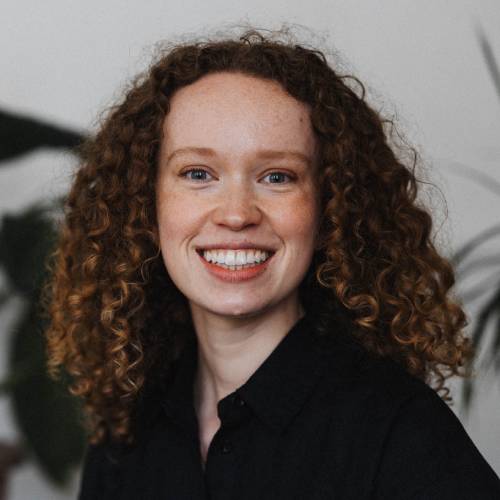
Lily Monsey
lilymm04@uw,edu
An Event Planning Toolkit to Support Community-led Programming for Cancer Prevention
PRACTICUM SITE: Fred Hutch: Office of Community Engagement and Outreach
SITE SUPERVISOR: Liz Tallent
DEPARTMENT: Health Systems and Population Health
FACULTY ADVISER: Miruna Buta
I am a second-year MPH student in the Department of Health Systems and Population Health. I completed a practicum with Fred Hutch's Office of Community Engagement and Outreach (OCOE). OCOE works alongside community and academic partners to improve health outcomes and address cancer disparities through relationship-building and collaboration with community partners throughout Washington State. My role involved designing and creating a community event planning toolkit to be used by Community Health Educators and partner community organizations. I also created a small social media planning toolkit to help community partners promote engagement and participation through social media platforms. I synthesized team meeting notes, past event evaluation data, and other team team toolkits to design these resources to be useful to these different audiences. This opportunity allowed me to apply my public health communication knowledge while working with a multidisciplinary team to strengthen community-based cancer prevention work.
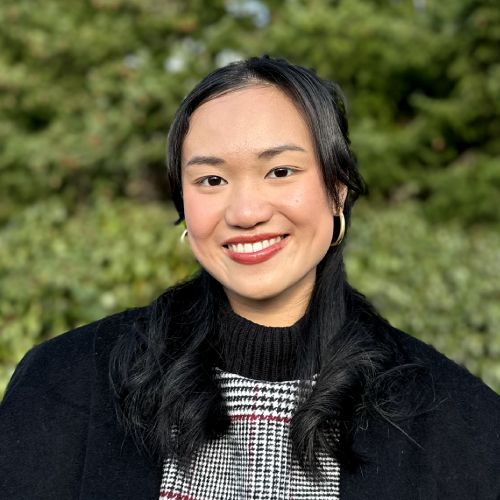
Mathi Ngamsiripol
mdangam@uw.edu
From Ethics to Application: Evaluating Oncologists' Perspectives of Artificial Intelligence Use in Cancer Care in Kenya, Nigeria, and Rwanda
PRACTICUM SITE: Hurone AI
SITE SUPERVISOR: Floria Nyandaya
DEPARTMENT: Epidemiology
FACULTY ADVISER: Kingsley Ndoh
As a second-year MPH student in Epidemiology, I completed a practicum with Hurone AI Inc., an organization dedicated to improving global access to precision cancer care by leveraging quality data from underrepresented groups. My project focused on a landscape analysis of oncologists' ethical perceptions of AI use worldwide. I developed interview guides and conducted over 10 qualitative interviews with oncologists and policymakers in Kenya, Nigeria, and Rwanda. Through thematic analysis, I produced a report highlighting key ethical concerns and implications to guide policy-making processes. This project aimed to address gaps in AI adoption within African contexts and evaluate stakeholder perceptions to inform context-specific implementation strategies.
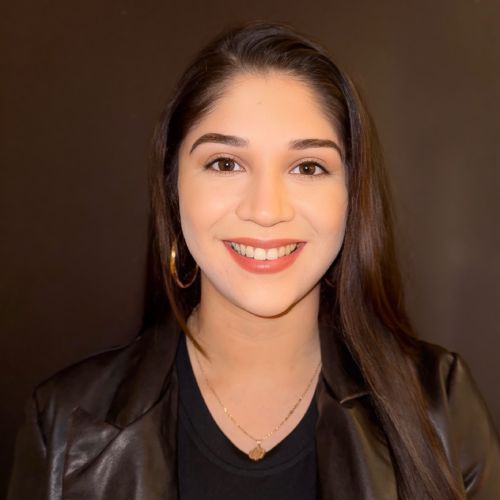
Melissa Resendiz Rivas
mrr25@uw.edu
Assessing Factors Impacting Latinx Mental Health and the Development of a Grant Tool for Future Latinx Health Board Funding
PRACTICUM SITE: Latinx Health Board
SITE SUPERVISOR: Giselle Zapata-Garcia & Nora Coronado
DEPARTMENT: Health Systems and Population Health
FACULTY ADVISER: Clarence Spigner
I am a second-year MPH student in Health Systems and Population Health. As a first-generation Mexican American, I am deeply passionate about addressing health inequities within Latinx communities in Washington State. For my practicum, I chose to collaborate with the Latinx Health Board, drawn to their work on mental health. During my practicum, I supported the Latinx Health Board by managing both qualitative and quantitative analysis for their oral histories project and parent survey, preparing reports based on the findings. Additionally, I contributed to the development of the Latinx Health Board website to enhance their community presence and communication. Lastly, I created a grant preparation and application tool to assist the board in securing funding for their initiatives. These experiences have allowed me to integrate my public health skills with my commitment to advancing equity in underserved communities.
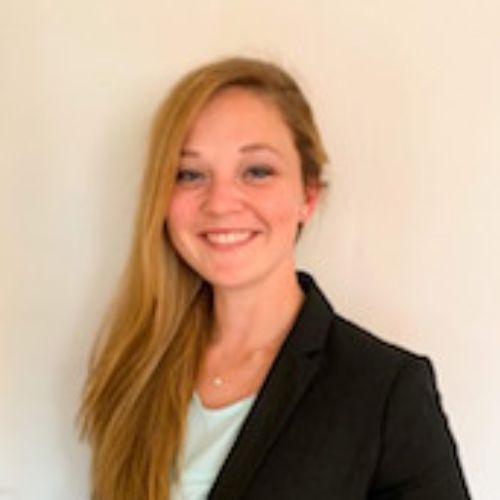
Nicole Chicoine
nchicoin@uw.edu
Examination of The Barriers to Employment Among Afghan Immigrants in Washington and The Potential Impact on Immigrant Health
PRACTICUM SITE: Porsesh Research Policy Institute
SITE SUPERVISOR: Ehsan Shayegan
DEPARTMENT: Online MPH
FACULTY ADVISER: Molly Firth
I am a second-year online MPH student with a focus on public health and equity. My interests include immigrant health, social determinants of health, and barriers to healthcare access. These interests stem from my personal experiences working in the healthcare field. During my practicum, I collaborated with the Porsesh Research Policy Institute to assess employment barriers faced by Afghan immigrants in Washington and their impact on health. This project involved conducting a cross-sectional community survey and facilitating a focus group to better understand challenges such as language barriers, credential recognition, and discrimination. My work highlighted the connection between unemployment and worse mental health outcomes among Afghan immigrants, particularly women, while offering actionable recommendations for policy interventions to support this community.

Nicole Larsen
neml@uw.edu
Advancing Health Equity Through CMS: The Role of the Social Determinants of Health
PRACTICUM SITE: Centers for Medicare and Medicaid Services (CMS)
SITE SUPERVISOR: Lorelei Piantedosi
DEPARTMENT: Health Systems and Population Health
FACULTY ADVISER: Clarence Spigner
I am a second-year MPH student in Health Systems and Population Health on the generalist track. For my practicum, I collaborated with the Centers for Medicare and Medicaid Services (CMS) to support their Pharmacy Education Program and Medicare Shared Savings Program. I prepared and delivered a continuing education presentation on the social determinants of health for pharmacists and other professionals involved in value-based care models at CMS. Additionally, I contributed to a continuous improvement project for Accountable Care Organization (ACO) coordinators, aiming to enhance communication with ACOs participating in the Shared Savings Program. This practicum deepened my appreciation for the expansive scope of healthcare innovation, regulatory processes, and collaboration at CMS, which collectively provide health coverage for over 160 million people.
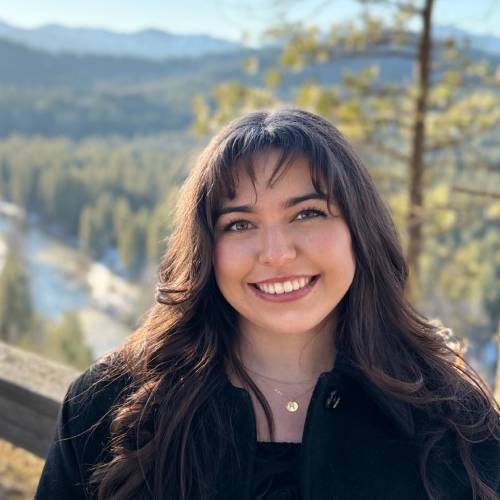
Reiley Duerre
duerrrei@uw.edu
Prehospital Buprenorphine Administration in King County
PRACTICUM SITE: Public Health - Seattle & King County
SITE SUPERVISOR: Megin Parayil, MPH
DEPARTMENT: Health Systems and Population Health
FACULTY ADVISER: Miruna Buta, PhD
I am a second year MPH student in the Department of Health Systems and Population Health. My interests include improving healthcare access for rural and underserved populations, emergency preparedness, and workforce safety. For my practicum, I worked with Public Health - Seattle & King County: Emergency Medical Services Division to develop a program for paramedics to administer buprenorphine to patients experiencing opioid withdrawals. Buprenorphine is an opioid partial agonist medication that treats acute opioid withdrawal and is a long-term treatment option for patients with opioid use disorder. This program was developed in tandem with the implementation of the Kirkland Crisis Center, allowing patients receiving buprenorphine to be transported to the crisis center rather than an emergency department. After designing the program, we developed the program evaluation plan using metrics that EMS providers already collect.
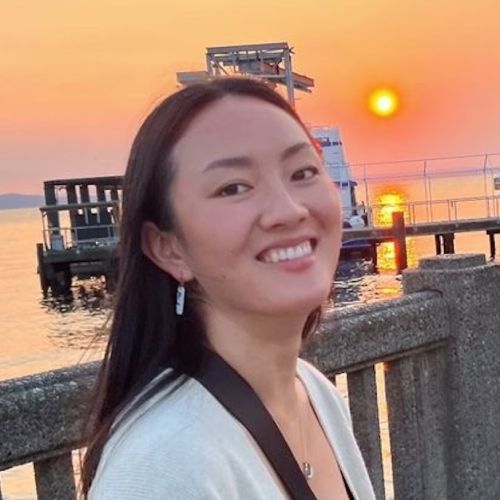
Sophie Whikehart
smwhikeh@uw.edu
Exploring Barriers and Perceptions of Cystic Fibrosis (CF) Clinical Trial Participation Among Racial and Ethnic Minoritized Populations in the United States
PRACTICUM SITE: Adult Cystic Fibrosis Center at UW Medical Center
SITE SUPERVISOR: Tijana Milinic
DEPARTMENT: Global Health
FACULTY ADVISER: Donna Denno
I am a second-year MPH student in the Department of Global Health. For my practicum, I am collaborating with the UW Adult Cystic Fibrosis (CF) Center on an ongoing study supported by the National Research Service Award. This project examines how race and ethnicity influence participation in CF clinical trials and aims to identify potential barriers and mechanisms contributing to differential recruitment within the United States. The study employs the Public Health Critical Race Praxis and the Behavioral Model for Vulnerable Populations to analyze the impact of systemic inequities and racism. My practicum seeks to illuminate the complex systems of inequity affecting clinical trial participation and to provide actionable recommendations for fostering more inclusive and equitable research practices. This practicum aligns with my goal of driving systemic change for BIPOC communities while advancing diversity to improve access and outcomes in public health.
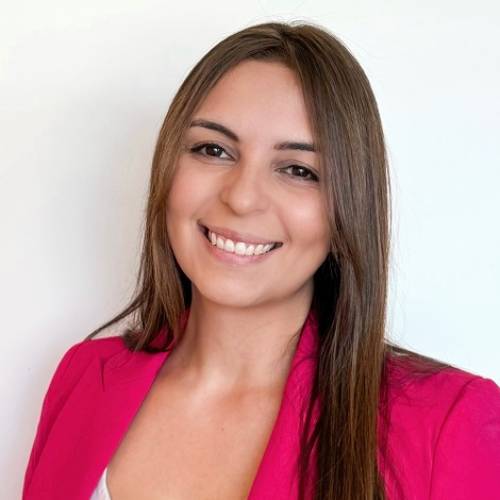
Thania Solar
tsolar@uw.edu
Culturally Responsive Health Education and Policy Advocacy to Advance Public Health Equity Among Latinx and Undocumented Communities in Washington State
PRACTICUM SITE: Latino Center for Health
SITE SUPERVISOR: Dr. Leo Morales
DEPARTMENT: Global Health
FACULTY ADVISER: Dr. Sarah Masyuko
I am a second-year MPH student in Global Health and the Global WACh certificate program with a background as a medical doctor. My interests lie in women and children's health, health access, and disease prevention. For my practicum, I worked alongside the Latino Center for Health team to promote health among Latinx communities in Seattle. My work involved organizing community events to raise awareness, provide health screenings, and share resources for managing and preventing chronic diseases. Additionally, I contributed to developing a survey to assess cardiometabolic health within the Latinx community in Seattle. I also assisted in creating a data-driven profile of undocumented immigrants in Washington state for inclusion in a policy brief. My role included event planning, attending outreach events, and collaborating with staff to refine culturally responsive information for Latinx residents.

ThuyMi Phung
tvp3@uw.edu
Landscape Analysis of Inclusion, Diversity, Equity, and Anti-Racist Practices in School Based Health Centers in Seattle & King County
PRACTICUM SITE: School-Based Partnerships Program at Public Health - Seattle & King County
SITE SUPERVISOR: Erin MacDougall
DEPARTMENT: Health Systems and Population Health
FACULTY ADVISER: Jenna Van Draanen
My name is ThuyMi Phung (she/her), and I am a second-year MPH student. For my practicum, I sought to learn more about systems of care for children and youth in King County, which led me to a project with the School-Based Partnerships Program team at Public Health – Seattle & King County. We conducted a landscape analysis of inclusion, diversity, equity, and antiracist (IDEA) practices at school-based health centers (SBHCs). Our objectives were to: (1) assess current IDEA efforts at SBHCs and sponsor agencies, including training, seminars, learning materials, and reflection groups; (2) compile practices and resources promoting IDEA from SBHCs outside King County; and (3) identify effective methods and tools to dismantle structural racism within SBHCs. Our ultimate goal was to develop recommendations for future IDEA practices, equipping staff with the knowledge, skills, and resources necessary to provide equitable care and dismantle structural racism within SBHCs.
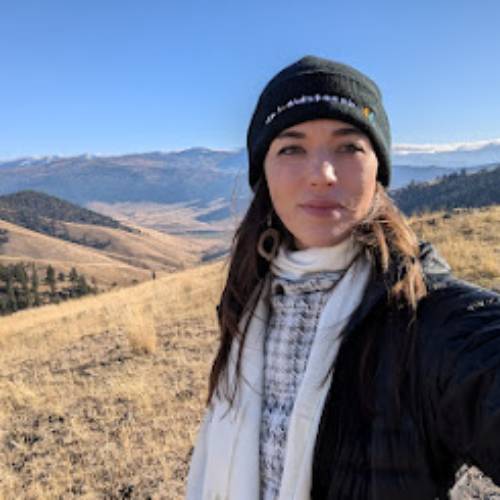
Brekken Cogswell
brekken@uw.edu
The SHARP Considerations: Bridging the Gap between Native American Communities & Researchers for Suicide Prevention
PRACTICUM SITE: UW Indigenous Knowledge Family
SITE SUPERVISOR: William Hartmann
DEPARTMENT: Global Health
FACULTY ADVISER: Keshet Ronan
I am a second year Global Health MPH student focused on rural and Indigenous health and wellbeing. My practicum experience occurred with the UW Indigenous Knowledge Family, a diverse group of health professionals with Indigenous affiliation focused on suicide in Native American communities.
Influenced by misrepresentations, institutions frequently circulate misguided ideas about who Native people are that feed into harmful stereotypes and inefficient suicide prevention strategies. This practicum included an evaluation of relevant suicide literature, discussion with Native social work, nursing, research, and psychology professionals, reviewing Indigenous methodologies, and the creation of the SHARP guidelines - tangible strategies for both communities and health professionals alike.
This project allowed me to engage with a group of Native health professionals - a rare occurrence that stimulated engaging discussion while centering Native knowledge. The SHARP considerations will be disseminated through Tribal communities & academic channels with hopes to address suicide in an effective and ethical manner.
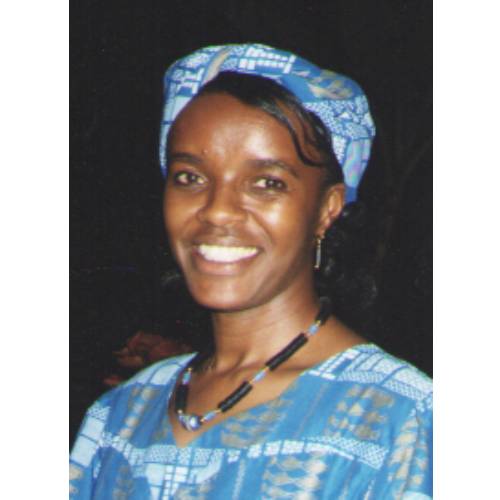
Judy Machuka
judym22@uw.edu
Adaptation of an opioid overdose prevention prevention presentation for the Black/African American community in King County
PRACTICUM SITE: Seattle Children's Odessa Brown Children's Clinic Othello
SITE SUPERVISOR: Alexis Ball
DEPARTMENT: Global Health
FACULTY ADVISER: Alison Roxby
I am a second year MPH in Global Health student with an interest in drug and substance use prevention and promotion of mental health. I worked at Seattle Children's Odessa Brown Children’s Clinic Othello, in King County, to adapt an opioid overdose prevention training for the Black/African American community. The importance of this was to address the alarmingly increasing use of opioids by this community and its associated high opioid overdose deaths. I first developed a literature review, examining the disparities against the Black/African American community in opioid overdose prevalence, community perspectives, legal implications and treatment. I then developed an interview guide to collect qualitative data from the Black/African American community on the cultural adaptations to the opioid overdose prevention training, to promote their uptake by the community. I made a presentation of my work to the community advisory board from the African American Reach and Teach Health ministry and anticipate the feedback informing the adaptation of the training at the clinic. I am grateful for the support of my site and faculty supervisors, in making my experience amazing. I interacted with a multi-disciplinary team at the clinic and strengthened my skills in qualitative research, intercultural communications and team work.
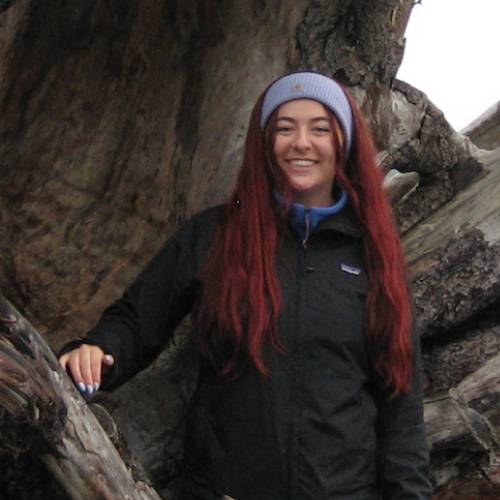
Madison Leon
mleon25@uw.edu
Intentional Injury Policy and Planning
PRACTICUM SITE: Seattle King County Public Health
SITE SUPERVISOR: Karyn Brownson, MSW
DEPARTMENT: Community-Oriented Public Health Practice
FACULTY ADVISER: Erin Morgan, PhD
I am a first-year MPH student in the COPHP program. For this practicum project, I was tasked with completing two bill reviews surrounding gun safety and violence for the 2025 legislative session and completing and compiling findings for the Lock it Up safe firearm storage promotion program statewide. I am very passionate about gun safety and wanted to learn more about policy in public health, so I knew this was the right practicum for me! Throughout this practicum, I was able to learn how to successfully complete bill reviews so that they can get passed and make Washington a safer place for everyone. We worked to understand the legislative audience and provide talking points so that the legislators understand the impact on health. I was also able to get to know the Lock it Up safe firearm storage program well and assisted my partners in interpreting and analyzing data from partnering counties. From the data, we were able to draft a final report of the Lock it Up program to present to partners, funders, policy makers, and the public. Overall, I learned so much throughout this practicum that I am going to take with me into my future career and endeavors. Special thank you to Karyn Brownson for all of her support and guidance as my supervisor!

Maria Carter-Cuadra
mcarterc@uw.edu
Evaluating the Impact of Secure Firearm Storage Interventions in Seattle
PRACTICUM SITE: Firearm Injury & Policy Research Program
SITE SUPERVISOR: Kelsey Conrick
DEPARTMENT: Epidemiology
FACULTY ADVISER: Daniel Enquobahrie
I am a second-year MPH student in the department of Epidemiology within the Maternal and Child Health track. My practicum was conducted through the University of Washington's Firearm Injury & Policy Research Program in collaboration with Seattle Children's and Public Health Seattle & King County. This project focused on evaluating the impact of community events and trainings aimed at promoting safe firearm storage devices, with the goal of reducing firearm-related harm and deaths in Seattle and King County. As part of this project, I conducted qualitative interviews with participants and stakeholders to identify the barriers and facilitators influencing the intervention's effectiveness. Additionally, I assisted with managing quantitative data related to current firearm storage practices within the community. Moving forward, I will focus on coding and analyzing the collected qualitative and quantitative data and compiling the findings into a comprehensive final report.

Nowreen Sarwar
nowreens@uw.edu
Understanding the Impact of Gun Violence on Youth of Color in King County
PRACTICUM SITE: Harborview Injury Prevention and Research Center
SITE SUPERVISOR: Dr. Angele Theard
DEPARTMENT: Global Health
FACULTY ADVISER: Dr. Ahoua Kone
I am a 2nd year MPH student in the Global Health program. For my practicum, I worked with the Harborview Injury Prevention and Research Center to study how gun violence impacts youth of color in King County. My project focused on understanding the emotional and social effects of experiencing or witnessing gun violence, such as how it influences mental health, feelings of safety, and opportunities for the future. Alongside this, I worked on a paper reviewing previous research on the topic, and new avenues we can take in policymaking going forward, which we’re hoping to publish soon. This work gave me the chance to dive deep into the data and connect it to real-life stories, helping me see the broader systemic issues at play. It’s been an outstanding experience that created lifelong friendships with my team and reinforced my passion for public health and my commitment to advocating for manageable solutions that support young people of color and their communities.
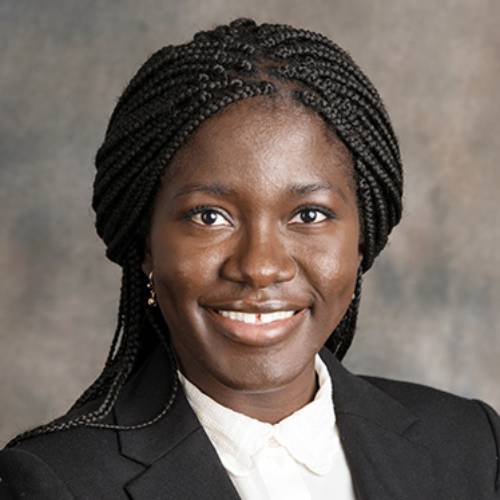
Nzuekoh Nchinda
nnchinda@uw.edu
Evaluation of Drug Screening and Management of Pediatric Opioid Exposures
PRACTICUM SITE: Washington Poison Center
SITE SUPERVISOR: Alex Sirotzki, MPH
DEPARTMENT: Health Systems and Population Health
FACULTY ADVISER: Molly Firth, MPH
I am a second-year MPH student in the Health Systems and Policy program. Given my interest in pediatric injury prevention, I wanted to gain experience and learn more about how the opioid epidemic impacts the pediatric population, especially in regards to high-potency synthetic opioids. Through my practicum at the Washington Poison Center, I am reviewed cases of pediatric opioid ingestions and initial emergency management of these cases. The aim of this project was first to assess the appropriate administration of drug screens in pediatric patients and to develop child safety recommendations for the Department of Children, Youth and Families. I reviewed and analyzed call records from the Washington Poison Center and medical records at Seattle Children's Hospital to also determine predictive factors in initial presentation after opioid ingestion that correlate with health outcomes.

Abigail Mulugeta
mulugabi@uw.edu
Identifying Key Needs of Aging Adults Living with HIV: A Regional Needs Assessment
PRACTICUM SITE: King County Public Health
SITE SUPERVISOR: Karen Chung
DEPARTMENT: Global Health
FACULTY ADVISER: Jenn Balkus
I am a second-year MPH student in the Department of Global Health with interests in sexual and reproductive health, program evaluation, and addressing health disparities. My practicum was conducted with the Ryan White Planning Council at King County Public Health, focusing on a needs assessment of people aged 50+ living with HIV in King, Snohomish, and Island Counties. The aim was to inform the council's allocation of $7 million in annual Ryan White Part A grant funding to improve HIV care for underinsured and uninsured individuals. I developed and finalized assessment tools, conducted interviews with aging individuals living with HIV, analyzed qualitative data using REDCap, and presented findings to the council. This experience enhanced my skills in program evaluation and reinforced my commitment to improving equitable healthcare access for vulnerable populations.
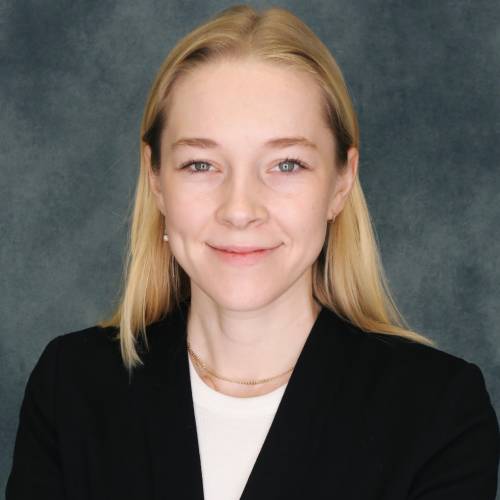
Anya Quig
aquig@uw.edu
Validation of AI-Generated Messages for Managing Side Effects and Symptoms in Cancer Patients Using the Gukiza Platform
PRACTICUM SITE: Hurone AI
SITE SUPERVISOR: Floria Nyandaya
DEPARTMENT: Epidemiology
FACULTY ADVISER: Kingsley Ndoh
I am a second-year MPH student in the Epidemiology Department. For my practicum, I worked with Hurone AI, a medical technology startup dedicated to developing culturally sensitive AI solutions to improve cancer care delivery in historically underserved populations. My work contributed to a validation study of Gukiza, Hurone AI’s digital health platform designed for breast cancer management. Validation studies are essential for ensuring AI tools are ethical and effective. This project aimed to evaluate the quality and appropriateness of AI-generated messages intended to help cancer patients manage side effects from combination therapy and compare these messages to guidance provided by practicing oncologists. Specifically, I conducted a comprehensive review of existing validation studies in cancer care AI to identify common methodologies and limitations. I also contributed to the planning and execution of Hurone AI’s own validation study.

Ayantu Tolessa
tolesa2@uw.edu
Bridging Emergency Care and Maternal Health: First Responders’ Role in the Blue Band Initiative
PRACTICUM SITE: Washington Department of Health
SITE SUPERVISOR: Bat-Sheva Stein DNP, RN
DEPARTMENT: Health Systems and Population Health
FACULTY ADVISER: Molly Firth
I am a second-year MPH student in the Department of Health Systems & Population Health. For my practicum, I worked with the Washington Department of Health on their Blue Band Initiative Project. This project had three main objectives: (1) engage first responders in attending the Blue Band workgroup to draft and refine a communication plan that effectively conveys the project's purpose and potential roles for first responders; (2) expand the communication plan across Washington State, targeting first responders through existing networks and professional channels to increase awareness and involvement in the Blue Band project; and (3) educate first responders and the broader community about their critical role in managing hypertensive crises among pregnant and postpartum populations.
For my practicum, I created a presentation and communication plan to engage first responders in the Blue Band Initiative. The Blue Band workgroup plans to continue using my presentation slides during meetings with doctors and other healthcare workers.
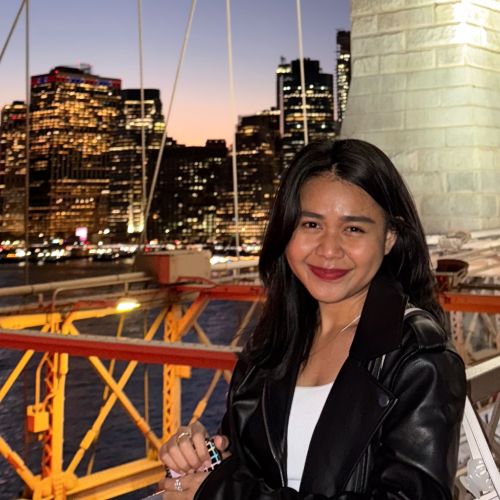
Chintya Erlianti
cerlia@uw.edu
Chelan-Douglas Health District (CDHD) Food Desert Assessment
PRACTICUM SITE: Chelan-Douglas Health District
SITE SUPERVISOR: Kristen N. Hosey
DEPARTMENT: Epidemiology
FACULTY ADVISER: Janet G. Baseman
I am a second-year MPH Epidemiology student with a research focus on infectious diseases, public health emergency preparedness and response systems, and outbreak investigations. For my practicum, I am exploring the intersection of public health emergencies and food insecurity through a food desert assessment project. Food deserts—areas with limited access to nutritious food—pose significant public health challenges, and these issues often worsen during public health emergencies. This was evident during the COVID-19 pandemic, which exacerbated food insecurity in vulnerable communities.
For this project, I am collaborating with the Chelan-Douglas Health District to assess food accessibility and availability within their jurisdiction. My responsibilities include conducting a literature review on food insecurity and food desert definitions, contributing to data collection methods, performing on-site windshield surveys, and drafting a report to validate the food desert status in the study area. This project also supports public health program monitoring and evaluation efforts, with the ultimate goal of improving food security and ensuring equitable access to nutritious food.
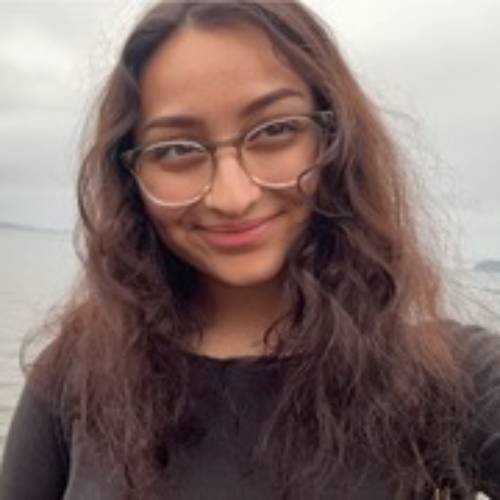
Destiny Cardenas
descard@uw.edu
Arcora Program Evaluation & Information Dissemination
PRACTICUM SITE: Latino Educational Training Institute (LETI)
SITE SUPERVISOR: Marisol Bejarano
DEPARTMENT: Health Systems and Population Health
FACULTY ADVISER: Clarence Spigner
I am a second year MPH student in the Generalist track of the HSPOP department. For my practicum I worked with the Latino Educational Training institute (LETI), which is an organization that serves Latino populations in King County. Their mission is to uplift and support the personal and financial successes of Spanish and bilingual speaking persons and inspire youth to become leaders in their communities. They support wellbeing and success through education, cultural awareness, and social responsiveness. In my project with them, I conducted a literature review on and evaluated their Arcora dental program. This program is one that aims to educate young adults on the importance of oral care and dentistry as a daily practice and as a potential profession.
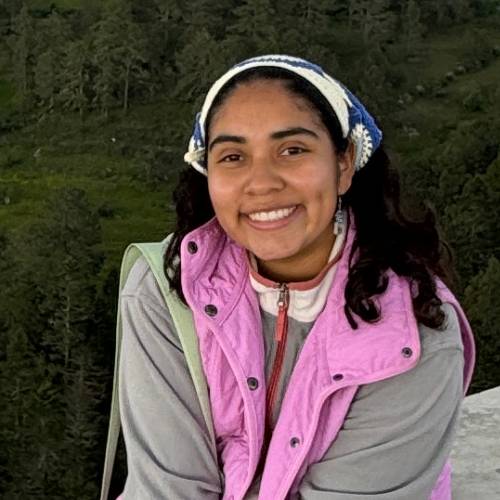
Evelyn Grijalva
evelyn01@gmail.com
Community Health Engagement and Nutrition Advocacy for Diabetes Among Latine Adults in Washington
PRACTICUM SITE: UW Latino Center for Health
SITE SUPERVISOR: Leo Morales
DEPARTMENT: Nutrition
FACULTY ADVISER: Anne E. Lund
I am a second year first generation graduate student in the School of Public Health pursuing an MPH in Nutrition. I am also part the Graduate Coordinated Program in Dietetics (GCPD), training to become a registered dietitian. I am passionate in program development and working for the Latine community. I hope to one day start a non profit supporting underserved community health through nutrition and physical activity. My practicum involves working with the Latino Center for Health (LCH) team and various partners to organize and deliver community engagement events for Latine communities in Washington, focusing on type 2 diabetes mellitus. I will collaborate on culturally responsive nutrition research addressing health issues in Latine communities across Washington state. I will contribute to new nutrition content for the patient education handbook and create a poster on developing culturally sensitive nutrition education for the Latine community. I will also participate in monthly community screenings. These screenings aim to identify health issues within the community and provide necessary referrals and support.
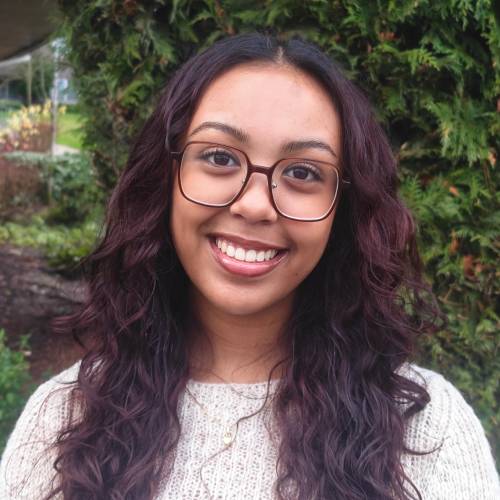
Faiza Awale
fawale@uw.edu
Advancing Equitable Data Representation: Redesigning and Optimizing the King County Health Disparity Dashboard for Understanding Health Disparities in King County
PRACTICUM SITE: Public Health – Seattle & King County, APDE Unit
SITE SUPERVISOR: Sara Jaye Sanford
DEPARTMENT: Epidemiology
FACULTY ADVISER: Gace C. John-Stewart
I am a second-year MPH student in the Epidemiology department with a passion for advancing health equity and understanding the intersections between social determinants and systemic health outcomes through data analysis and dissemination. My practicum with Public Health – Seattle & King County’s APDE unit addressed gaps in access to data for advancing health equity by redesigning the King County Health Disparity Dashboard. I conducted a literature review to identify best practices for equitable data representation and health disparity measurements. Insights from this review informed dashboard visualizations and data framing. I led user-feedback sessions with internal staff and community partners to prioritize health indicators and optimize dashboard design for user engagement. Using R and SQL, I improved ETL processes to streamline data extraction and updates, while Tableau was employed to enhance dashboard visuals. With my practicum, I aim to improve access to actionable health disparity data for King County communities and local agencies to inform public health policies and interventions.
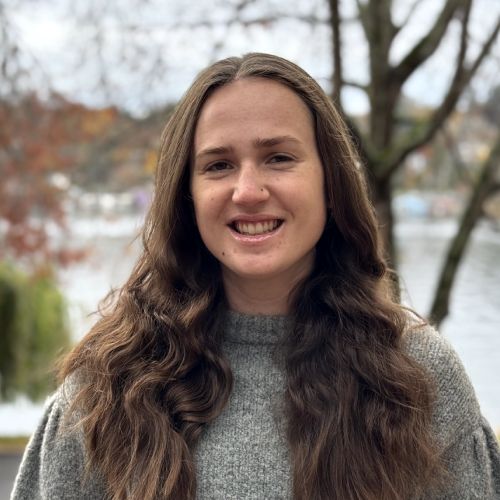
Grace Dickel
graced7@uw.edu
Enhancing Program Performance and Expanding Harm Reduction Services: Data Analysis and Outreach with HEP
PRACTICUM SITE: Hepatitis Education Project
SITE SUPERVISOR: Kimberly Taber
DEPARTMENT: Epidemiology
FACULTY ADVISER: Dr. Nina H. Kim
I am a second-year MPH candidate in Epidemiology with a focus on infectious diseases and clinical outcomes. During my practicum, I gained valuable public health experience by supporting HEP’s data analysis and harm reduction outreach initiatives. I developed internal reports and a dashboard in Apricot to track key performance indicators for medical case management, outreach tests, and client care outcomes. These tools, based on data from 2019–2024, enabled HEP to monitor progress and refine program strategies. In addition, I contributed to HEP’s Syringe Service Program (SSP) and encampment outreach by distributing harm reduction supplies and educating participants on safer substance use practices. These efforts extended HEP’s reach to underserved populations. This practicum enhanced my skills in data management, harm reduction, and addressing stigma within public health services.
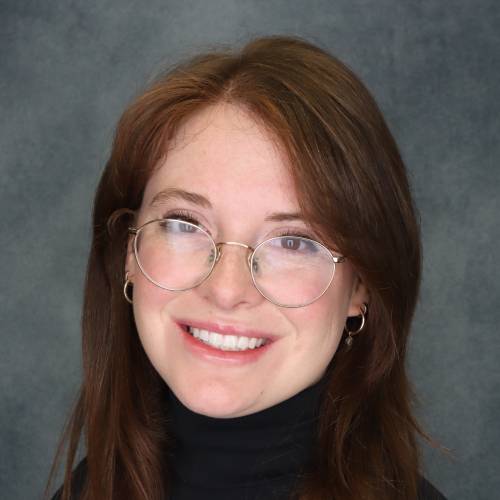
Haley Birdoes
haley152@uw.edu
Exploring the Landscape of Naloxone Kiosks in Washington State.
PRACTICUM SITE: Washington State Department of Health
SITE SUPERVISOR: Noah Frank
DEPARTMENT: Epidemiology
FACULTY ADVISER: Dr. Christine Khosropour
I am a second-year MPH student in the Department of Epidemiology. For my practicum, I worked with the Drug User Health team at the Washington State Department of Health (WA DOH). We explored the landscape of passive naloxone distribution systems, or naloxone kiosks, in Washington State. I conducted a literature review, created a reference document with programs that are likely to have a naloxone kiosk, and developed a survey in REDCap to gather insights from community partners in Washington, summarizing findings into a two-page report. This provided understanding into the implementation, operation, and impact of naloxone kiosks for the Drug User Health team and other internal teams at WA DOH.
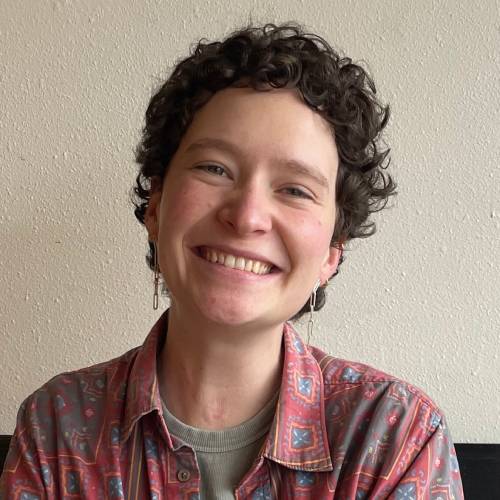
Hannah Newcombe
hmnewc@uw.edu
Community Assessment and Education for the Transgender Health and Wellness Center's "Safe and Supported Transition" Programs
PRACTICUM SITE: The Transgender Health and Wellness Center of Washington
SITE SUPERVISOR: Cheryl Enstad
DEPARTMENT: Epidemiology
FACULTY ADVISER: Steve Hawes
I am a second year MPH student in the Epidemiology department. My research interests include access to gender affirming care for transgender and gender expansive (TGE) populations, social support, and public health communication. For my practicum, I worked with the Transgender Health and Wellness Center of Washington (Trans-Wa) in the development of their “Safe and Supportive Transition Program.” I created a survey and a focus group interview guide that Trans-Wa will use to assess overall health, community assets, and needs of TGE individuals residing in Washington state. Findings from the survey will be used to inform program development and strategic planning for the organization. In addition, I developed educational content for Trans-Wa’s online platform focused on ways health care practitioners can create gender-affirming practices, and how TGE individuals can identify gender-affirming health care practitioners and advocate for their needs in the health care setting.
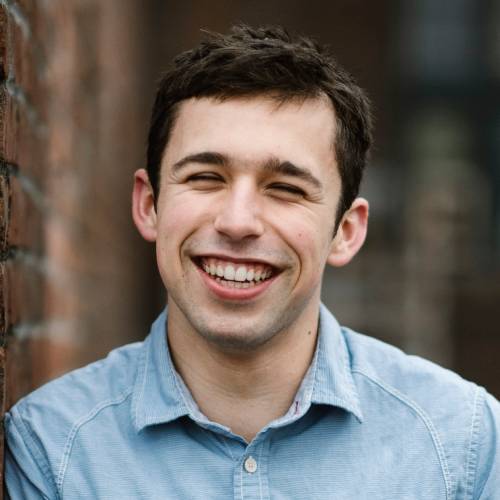
Henri Coronado-Volta
hcoron@uw.edu
From Transaction to Transformation: the REBSA Experience.
PRACTICUM SITE: Department of Health
SITE SUPERVISOR: Mariel Torres Mehdipour
DEPARTMENT: Epidemiology
FACULTY ADVISER: Steve Hawes
I am a second-year MPH candidate in Epidemiology with interests in health equity, social determinants of health and chronic diseases especially working with the Latine population. King County is facing a $35M General Fund shortfall in 2025. As a result of this historic budget gap, PHSKC launched the Racial Equity Budget and Services Analysis (REBSA). REBSA is a collaboratively designed team that integrates explicit considerations of racial equity into the budget development and key decision-making processes. This practice has supported activities related to assessing the racial equity impacts of budget decisions for potential burdens and benefits for communities of color and low-income communities. It ensures programs, services, and investments to help reduce racial and ethnic health disparities; and requires future improvement requests to apply a racial equity framework and methodology to overall budget development and decision-making processes.
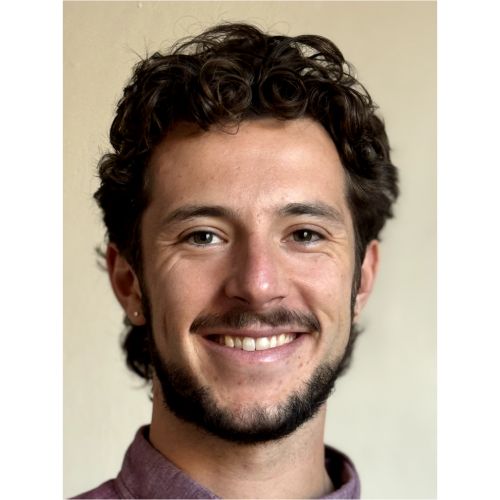
Isaac Rubinstein
ilr@uw.edu
Evaluation of 4-Week Data Academy at Rhode Island Department of Health
PRACTICUM SITE: Brown School of Public Health - People, Place & Health Collective
SITE SUPERVISOR: Julia Noguchi, MA, MPH, DrPH
DEPARTMENT: Online MPH
FACULTY ADVISER: Molly Firth
Evaluation of a 4-week professional development course offered by the People, Place & Health Collective to staff at the Rhode Island Department of Health, Center for Health Equity. The evaluation focuses on topics such as data storytelling skills and organizational data culture. Subtopics include the intersection of health equity measurements with plain language communication, audience segmentation, and data visualization. This workforce development program aims to enhance cross-sectoral collaboration in the pursuit of health equity.
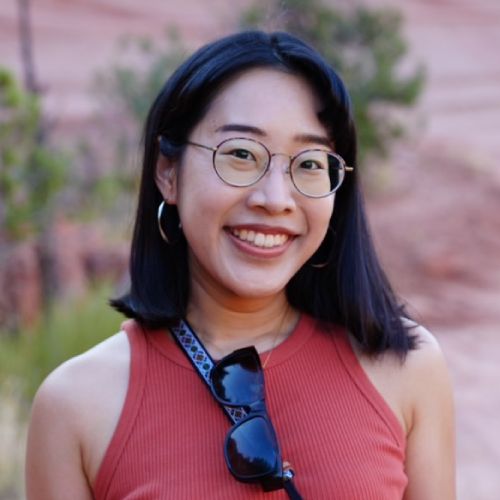
Jenny Hsieh
yhsieh3@uw.edu
Evaluation Report for Member Experiences in Pike Market Senior Center
PRACTICUM SITE: Pike Market Senior Center
SITE SUPERVISOR: Zoé Freeman
DEPARTMENT: Epidemiology
FACULTY ADVISER: Miruna Buta
I am a second-year MPH student in the Department of Epidemiology with research interests in geriatric epidemiology, cardiovascular disease prevention, and social determinants of health. Working with older adults is especially meaningful to me, which led me to partner with the Pike Market Senior Center. This center focuses on addressing fundamental needs, fostering social connections, and enhancing the physical and mental well-being of older adults in Downtown Seattle.
Our project used a qualitative approach, conducting individual interviews with members to gain a deeper understanding of their needs and provide valuable insights to staff. The findings will also support the center's efforts in future grant writing.

John Atiiga
jsumkai@uw.edu
Curriculum Assessment of the Africa Epidemic Service (AES) – Public Health Informatics (PHI) Fellowship
PRACTICUM SITE: Digital Initiatives Group at I-TECH (DIGI), UW
SITE SUPERVISOR: Anne Njoroge
DEPARTMENT: Global Health
FACULTY ADVISER: Nancy Puttkammer
I am a second-year MPH student in the Department of Global Health with a background in dentistry, which inspired my interest in infectious diseases, health systems, and health equity. I also have a strong interest in monitoring and evaluation. For my practicum, I worked with the Digital Initiatives Group at I-TECH (DIGI) to develop the Curriculum Assessment Model for the Africa Epidemic Service – Public Health Informatics (AES-PHI) Fellowship. This flagship program is part of Africa CDC’s Digital Transformation Strategy for 2020-2025. My responsibilities included developing and refining assessment rubrics for Core Activities of Learning (CALs), which encompass Capstone, Practicum, and Short-Term Field Support projects. I created detailed instructions for learners and faculty to align with these rubrics, ensuring clarity and consistency in evaluations. Additionally, I designed a course assessment survey based on the Kirkpatrick Model for fellows to self-administer at the end of each course. I also mapped out learning exercises for each course, specifying grading criteria to streamline the assessment process and improve learner performance evaluation.
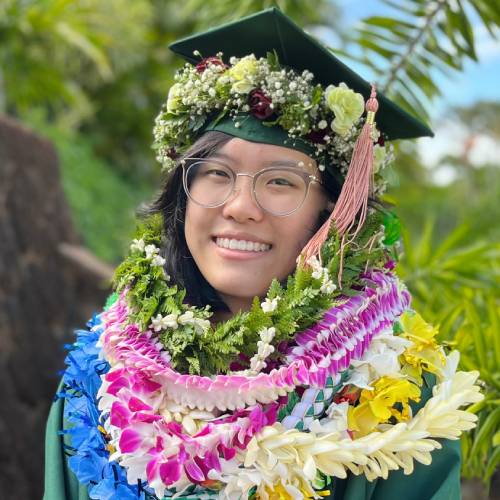
Julie Kobayashi
jk19@uw.edu
Implementing a Produce Prescription Pilot Program at Kapiʻolani Medical Center to Increase Food Security Among Pediatric Patients
PRACTICUM SITE: Hawaiʻi Pacific Health
SITE SUPERVISOR: Crystal Theel, MSN, RN
DEPARTMENT: Health Systems and Population Health
FACULTY ADVISER: Dr. Katarina Mucha
I am a second-year MPH candidate in the Department of Health Systems and Population Health. My research interests include the built environment, transportation accessibility, and food insecurity. For my practicum, I had the opportunity to work with Hawaiʻi Pacific Health to implement a Produce Prescription Pilot Program (PRx) for pediatric patients at Kapiʻolani Medical Center. The goal of this PRx was to increase food security among our patient population with a focus on those who are low-income, food insecure, or at risk for developing diabetes and obesity through locally-sourced curated produce boxes. As part of my practicum, I researched existing literature surrounding PRx implementation with a focus on barriers and facilitators to project implementation, collaborated with stakeholders to establish the procedures and workflows for program implementation, participated in grant writing, and created a mockup of the nutrition education brochure that would be included in the curated boxes.
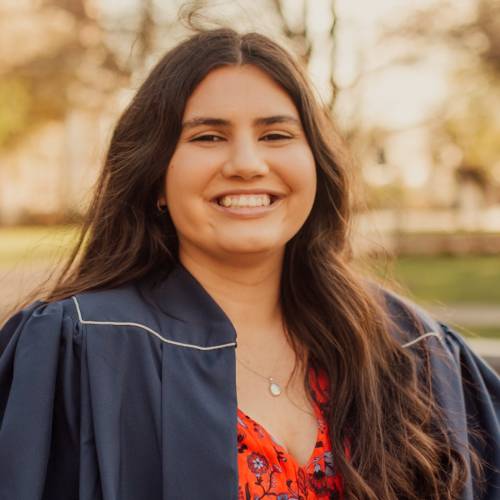
Kathryn Ettl
kettl@uw.edu
SNAP-Ed Partner Needs Assessment
PRACTICUM SITE: Washington State Department of Health, Office of Nutrition Services
SITE SUPERVISOR: Nora Downs
DEPARTMENT: Health Systems and Population Health
FACULTY ADVISER: Clarence Spigner
I am a second-year MPH student in the department of Health Systems and Population Health. My research interests include health equity, food systems, and program evaluation and implementation. For my practicum, I worked with the Washington State Department of Health SNAP-Ed team on a needs assessment for SNAP-Ed partners. This was the final phase of a 3-phase assessment of SNAP-Ed programing. This needs assessment was used: to assess how well SNAP-Ed programs align with participant needs, to gather input from program partners about potential improvements, and to identify innovative successes. I assisted the team with the creation of survey materials, administering and analyzing surveys, conducting partner interviews, and creation of assessment communications.
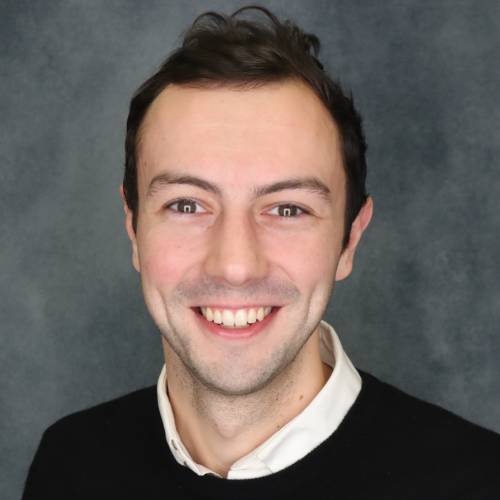
Liam Lane
llane1@uw.edu
Barriers and facilitators to implementing the RAD-AID Women’s Health program at Federally Qualified Health Centers in the US
PRACTICUM SITE: Fred Hutch Cancer Center
SITE SUPERVISOR: Catherine Duggan, PhD
DEPARTMENT: Global Health
FACULTY ADVISER: Kata Mucha, PhD, MPH
I am a second-year Master of Public Health student in the Department of Global Health, with a focus on health systems strengthening and advancing health system reform through applied research methods. During my practicum at Fred Hutch Cancer Center, I led the development of quantitative and qualitative data collection tools and managed the evaluation of the RAD-AID USA Women’s Health Access Initiative at select Federally Qualified Health Centers. The findings from this evaluation will guide the program’s implementation at additional sites and support broader research efforts aimed at developing resource-appropriate, sustainable strategies to reduce disparities in breast and cervical cancer screenings across the United States.
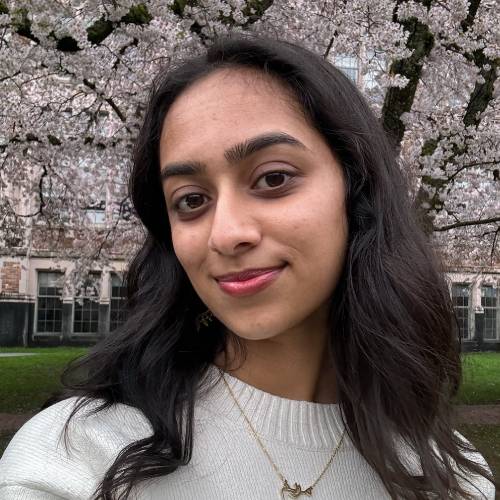
Maryam Tanveer
maryamta@uw.edu
Describing a Novel Health Promotion Program for South Asian American Adults
PRACTICUM SITE: Indian American Community Services (IACS)
SITE SUPERVISOR: Salima Bangur
DEPARTMENT: Epidemiology
FACULTY ADVISER: Dr. Daniel Enquobahrie
I am a second-year MPH student on the Maternal-Child Track in the Epidemiology. My practicum was with the Indian American Community Services (IACS). IACS is a community‐based organization in Washington that serves Asian Indian immigrants and refugees across King, Pierce and Snohomish Counties mostly. IACS works to connect and empower the Asian Indian community of all ages and all life stages through programs, services, and advocacy that respects and celebrates cultural traditions and values. With funding from the King County Veterans, Seniors, and Human Services Levy, IACS developed the Evidence-Based Health Program (EBH), an 8-month program focused on diabetes prevention and management for older Indian American adults with pre-diabetes or Type-2 diabetes. EBH integrates culturally tailored health coaching, nutrition education, yoga, breathing exercises, and biometric tracking to help support participants with lifestyle changes to better manage diabetes and pre-diabetes. Through my practicum experience, I created a report evaluating this program and infographics to share their program's results with the public.
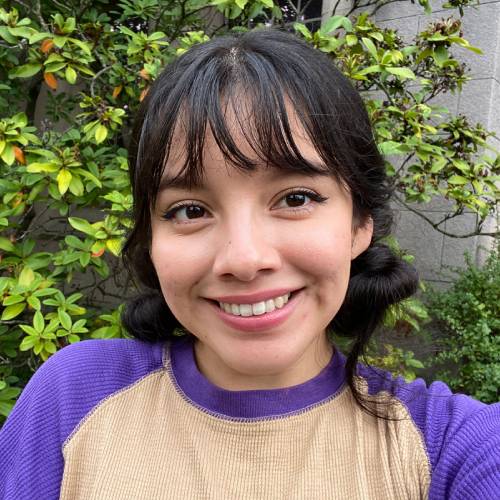
Mirta Maravilla Rosas
mirtam@uw.edu
Building Partnerships for Community Health: Tools for Kitsap Community Health Priorities and a Community Health Improvement Plan (CHIP).
PRACTICUM SITE: Kitsap Public Health District
SITE SUPERVISOR: Siri Kushner
DEPARTMENT: Epidemiology
FACULTY ADVISER: Dr. Miruna Buta
I am a second-year MPH student in the Epidemiology department. My research interests include neighborhood and social determinants of health that impact access and treatment to health services for minority populations. For my practicum, I had the privilege to work at Kitsap Public Health District (KPHD), researching and developing tools that would help monitor and evaluate their Community Health Improvement Plan (CHIP) process for each community health priority. I also developed a comprehensive communication tool to present key data for the health priority to be shared with key leaders from health organizations in Kitsap County during a strategy development meeting.
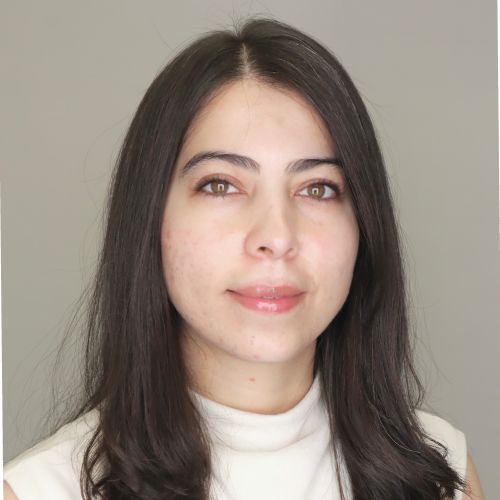
Naznain Aman
Naman3@uw.edu
Conducting program assessments to inform overall strategy development for the VOAWW Organization
PRACTICUM SITE: Amisteed Consulting
SITE SUPERVISOR: Julie Rajaratnam
DEPARTMENT: Global Health
FACULTY ADVISER: Annette E Ghee
For my practicum, I collaborated with Volunteers of America Western Washington (VOAWW), a faith-based organization dedicated to fostering self-sufficiency within diverse communities. Under the mentorship of Julie Rajaratnam, I developed theories of change (TOCs) for four VOAWW programs. This work included conducting interviews with program teams to map pathways to impact and contributing to cross-program analysis. My efforts informed VOAWW’s overarching organizational strategy by aligning programmatic TOCs with their mission, creating an evidence-based framework to strengthen partnerships and secure funding.

P.J. Boogard
boogapar@uw.edu
Puget Sound Resilience Hub Pilot Project
PRACTICUM SITE: Seattle Office of Emergency Management
SITE SUPERVISOR: Consuelo Crow
DEPARTMENT: Health Systems and Population Health
FACULTY ADVISER: Molly Firth
I am a second year MPH candidate in the Health Systems and Policy track. During my undergraduate studies at the University of Washington I double majored in Medical Anthropology and Human Evolutionary Biology, building on my understanding of the relationship between culture and health as well as the influence of social determinants on the well-being of individuals and communities. I've been interning with Seattle OEM, where I've continued to gain extensive hands-on experience working in disaster research and emergency management. My Practicum experience centered around project management and community engagement for the Puget Sound Resilience Hub pilot project funded through FEMA's Regional Catastrophic Preparedness Grant Program. The project looks to partner with local community-based organizations to complete community outreach and engagement to gain insight and feedback as to what local community members would like to see in a resilience hub to best prepare and sustain their unique community needs in future times of emergency.
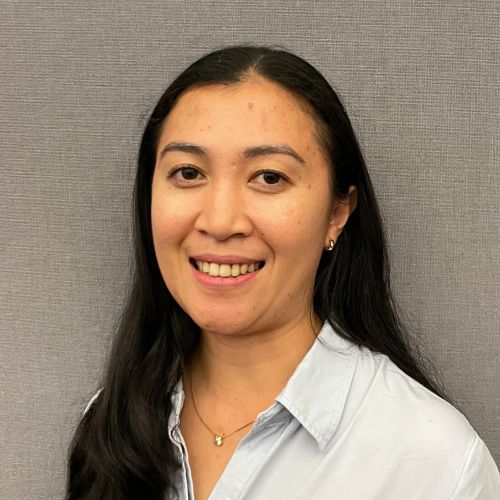
Rara Dethan
rarad@uw.edu
Reviewing Updated ‘Response to Gender-Based Violence (GBV)’ Training Curriculum
PRACTICUM SITE: NGO HAMNASA
SITE SUPERVISOR: Laurensius Amir Lein
DEPARTMENT: Global Health
FACULTY ADVISER: MaryAnne Mercer
I am a second-year MPH student in the Department of Global Health with interests in maternal and child health and sexual and reproductive health and rights. I am supporting HAMNASA’s Response to Gender-Based Violence (GBV) training curriculum in Timor-Leste by reviewing updated training modules, developing learning lab guidelines, refining monitoring and evaluation (M&E) tools, and strengthening evaluation plans.
This practicum aligns with HAMNASA’s goals of enhancing its GBV training program and promoting evidence-based practices. By addressing gaps and making strategic recommendations, I aim to improve healthcare services for GBV survivors and equip providers with the skills needed to respond effectively and compassionately. My work contributes to building a compelling narrative that highlights the program’s impact and its critical role in addressing GBV in Timor-Leste.
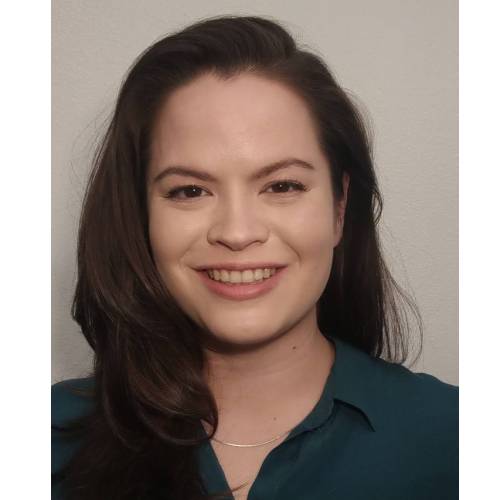
Sarah Wang
smw9520@gmail.com
2024 Wait Times Study for Access to Genetic Services in Washington State (WA)
PRACTICUM SITE: Genetics Program, Washington State Department of Health (DOH)
SITE SUPERVISOR: Nini Shridhar, PhD, MPH, State Genetics Coordinator
DEPARTMENT: Public Health Genetics
FACULTY ADVISER: Joon-Ho Yu, PhD, MPH
Hello, my name is Sarah, I am an Institute for Public Health Genetics MPH student. I interned under the WA Department of Health to conduct a quality assurance and improvement assessment that captured average wait times for patients seeking genetics related care. The information was intended to identify differences in wait times, help the state identify where resources may be needed to improve wait times, and determine the effect of widespread telehealth adoption as a means of genetics healthcare delivery on patient wait times. This endeavor was a follow-up to previous iterations from 2013 and 2017. Over ninety timelines for patient wait times were collected from over twenty clinics using the Third Next Available Appointment model and stratified by provider type, urgency, and mode of healthcare delivery.
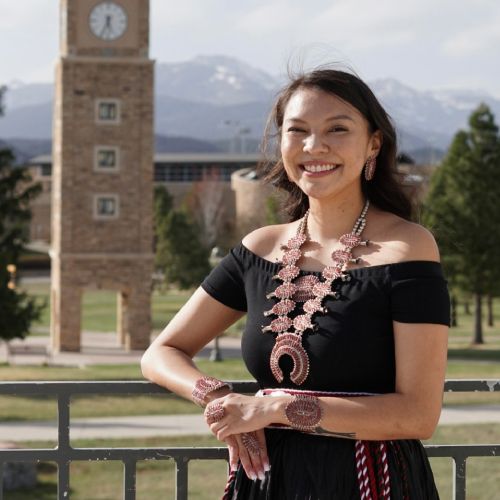
Shauntel Thomas
srthoma@uw.edu
Thriving Indigenous Communities: Exploring Holistic Health Indicators
PRACTICUM SITE: NDNCollective
SITE SUPERVISOR: Martell Hesketh
DEPARTMENT: Health Systems and Population Health
FACULTY ADVISER: Miruna Buta
As a second-year MPH candidate in the Health Systems and Population Health Department with a concentration in Social and Behavioral Health Sciences, I completed my practicum with NDNCollective. My work focused on understanding the comprehensive needs of Indigenous communities, particularly how self-determination and cultural practices contribute to healthy living. This project enhanced NDNCollective's understanding of holistic health indicators in Indigenous communities by highlighting the influence of cultural continuity, land rights, and access to traditional practices on positive health outcomes. These findings will inform NDNCollective's future initiatives and policies to foster thriving Indigenous communities.
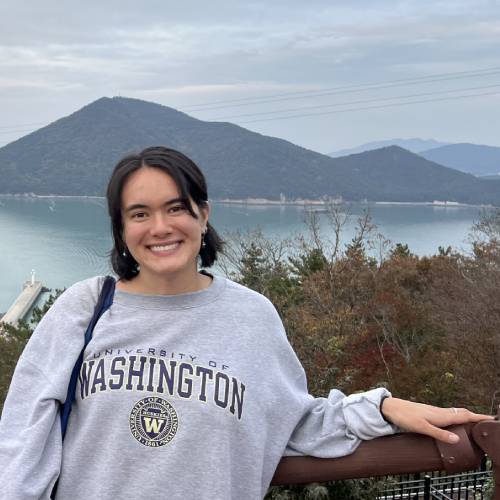
Tessa Fujisaki
tfuj@uw.edu
Participatory intervention design and trial preparation for the Integrated Perinatal Mental Health (IPMH) study
PRACTICUM SITE: Kenyatta National Hospital
SITE SUPERVISOR: Dr. John Kinuthia
DEPARTMENT: Global Health
FACULTY ADVISER: Dr. Keshet Ronen
I am a second-year MPH candidate in the Department of Global Health, with a focus on reproductive health, mental health, Indigenous health, and public health education. For my practicum project, I worked with Kenyatta National Hospital to summarize discussions from the participatory design workshops with stakeholders, which helped guide the intervention for the Integrated Perinatal Mental Health (IPMH) study trial. Additionally, I developed Standard Operating Procedures (SOPs) on risk and serious adverse event reporting for the clinical trial of the intervention. I am grateful for the DGH Fieldwork Fellowship, which allowed me to learn from and collaborate with the team in Kisumu, and for the guidance from Keshet throughout my practicum journey.
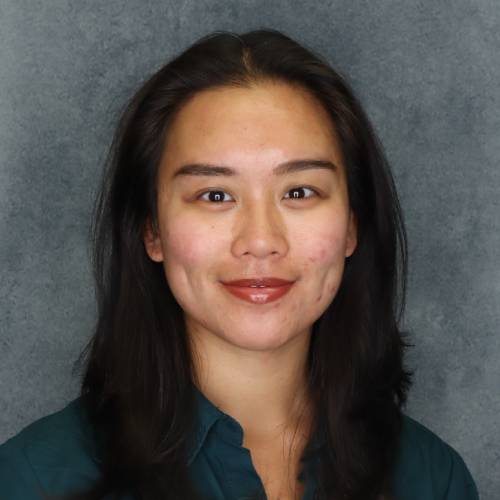
Cindy Zha
czha2@uw.edu
HPV Vaccine Education in Nakuru County, Kenya
PRACTICUM SITE: Naivasha Sub-county Hospital
SITE SUPERVISOR: Douglas O Bosibori
DEPARTMENT: Global Health
FACULTY ADVISER: Carey Farquhar
I am a second year MPH in Global Health Student from the United States. I have experience working in women's health, reproductive health, DEI programming, affordable housing, and obesity prevention in cancer survivors. My passion lies in supporting gender equity through uplifting women’s health. For my practicum project, I created educational materials and supported community education sessions on HPV Vaccination for girls ages 10-14 in Naivasha, Kenya. These educational materials were adapted for church settings and female sex workers. Along with the educational materials, a survey was created and disseminated to evaluate the educational materials and collect community perspective on HPV and Cervical Cancer.

Doyeon Park
dzp0032@uw.edu
Quality Improvement for One Health Clinic Care Among Youth Experiencing Homelessness and Housing Insecurity
PRACTICUM SITE: UW Center for One Health Research
SITE SUPERVISOR: Vickie Ramirez
DEPARTMENT: Epidemiology
FACULTY ADVISER: Kathryn Kuehl
I am a second-year MPH Epidemiology student with an interest in infectious diseases. Currently, I am working with the One Health Clinic (OHC) in downtown Seattle and Ballard to enhance the delivery of integrated medical and veterinary care for youth experiencing homelessness or housing insecurity. My practicum focuses on quality improvement initiatives that promote diversity awareness, cultural sensitivity, trauma-informed care, and effective communication among volunteers. These efforts aim to build trust and improve the clinic's capacity to provide comprehensive, inclusive care in a challenging environment often constrained by staffing limitations and reliance on volunteers. Through this work, I strive to support the OHC’s mission of addressing health disparities for vulnerable populations.
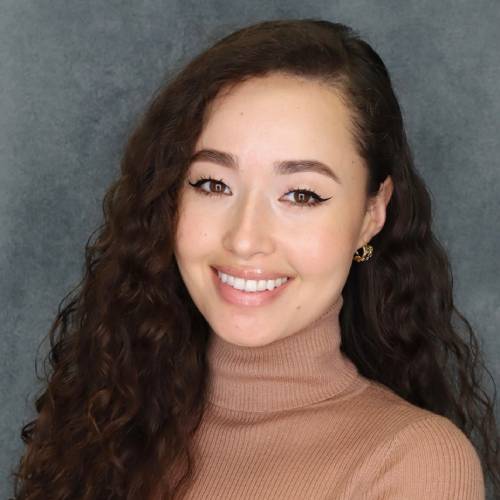
Edith Dale
edith74@uw.edu
Cervical Cancer Education in Naivasha, Kenya
PRACTICUM SITE: Naivasha Sub-county Hospital
SITE SUPERVISOR: Douglas O Bosibori
DEPARTMENT: Global Health
FACULTY ADVISER: Carey Farquhar
As a second-year MPH student in the Department of Global Health with a passion for maternal and child health, I completed my practicum with the Clinical Education Partnership Initiative (CEPI) at Naivasha Sub-county Hospital in Kenya. My project focused on cervical cancer, a pressing health concern for women in Kenya, through culturally tailored education and community outreach. I developed bilingual brochures and presentations to raise awareness about cervical cancer prevention and early detection. Collaborating with local churches and key population clinics, I facilitated interactive sessions to empower communities with lifesaving information. Additionally, I designed an evaluation plan to measure the impact of these efforts. This experience strengthened my commitment to reducing health disparities and highlighted the critical role of education in improving health outcomes for women in low-resource settings.
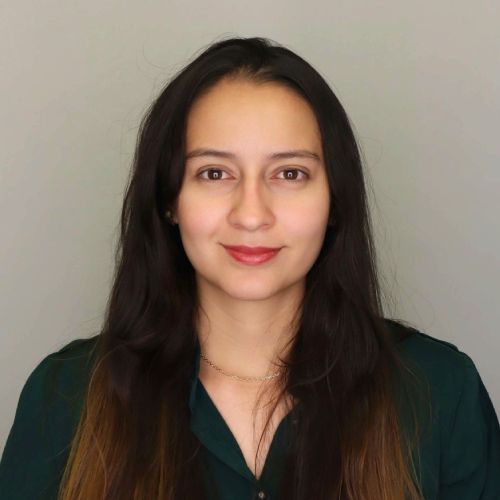
Kathleen Agudelo Paipilla
kagudelo@uw.edu
Engaging Indigenous Latin Communities Through Culturally Adapted Communication to Promote Sexual Health Services
PRACTICUM SITE: Entre Hermanos
SITE SUPERVISOR: Martha Zúñiga
DEPARTMENT: Global Health
FACULTY ADVISER: Jane Lee
I am a second-year MPH student in Global Health, with primary interests in reducing inequities in access to quality healthcare services for marginalized communities and exploring the intersection of cultural diversity, health, and the One Health approach. For my practicum, I collaborated with Entre Hermanos, a community-based organization dedicated to advancing the health and well-being of the LGBTQ+ community through prevention, education, support services, advocacy, and fostering a culturally inclusive environment.
The main goal of my project was to support the launch of a new location in Yakima, aimed at enhancing outreach to rural areas of Washington State. To contribute to this initiative, I developed a culturally adapted communication plan that integrated evidence-based strategies to effectively engage Latinx and Indigenous populations.
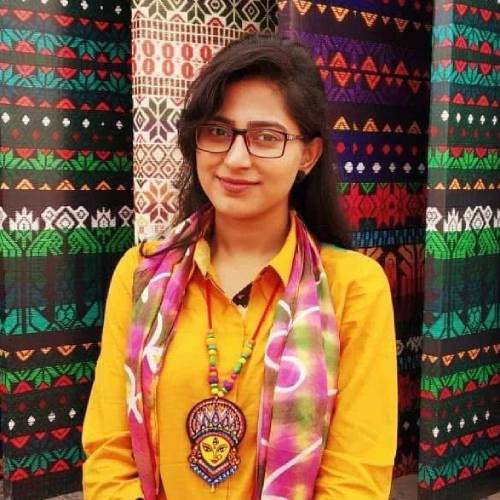
Prity Lata Chakraborty
prity@uw.edu
Evaluation of Mpox Vaccine Effectiveness Under the CDC’s Emerging Infections Program in King County and 12 other U.S. sites
PRACTICUM SITE: Public Health – Seattle & King County (HIV/STI/Hepatitis C Program - Harborview Medical Center)
SITE SUPERVISOR: Roxanne Kerani, PhD
DEPARTMENT: Epidemiology
FACULTY ADVISER: Dr. Joel Kaufman, MD, MPH Professor of Epidemiology and Medicine
I am a second-year MPH student in the Department of Epidemiology at the University of Washington, with a background in microbiology . My research interests focus on infectious disease prevention, vaccine effectiveness, and health equity. I hold a Master’s in Microbiology and have prior experience working on molecular profiling of antibiotic resistance and public health interventions.
For my practicum, I collaborated with Public Health – Seattle & King County, the Washington State Department of Health, and the CDC on a case-control study evaluating the effectiveness of the mpox vaccine (Jynneos) across King County and 12 U.S. sites. My role included managing REDCap data, integrating immunization records, and contributing to recruitment strategies.
This experience, combined with my academic and professional background, has strengthened my skills in epidemiological research, data management, and stakeholder engagement, driving my commitment to improving public health outcomes.
Updated: January 2026
